- About Us
- PAFI Views
-
Events
- PAFI Dialogues
-
National Forum
- 10th Annual Forum 2023
-
9th Annual Forum 2022
INDIA @ 100 – Scale, Speed & Sustainability
September 22-23, 2022
New Delhi -
8th National Forum 2021
Reviving the Economy: Reimagine. Reboot. Reform
October 21-22, 2021
New Delhi -
7th National Forum 2020
Building Trust, Charting Growth
October 22-23, 2020
New Delhi -
6th National Forum 2019
Developing Partnerships, Engaging Stakeholders
September 19-20, 2019
New Delhi -
5th National Forum 2018
Public Affairs: The New Paradigm
September 13-14, 2018
New Delhi -
4th National Forum 2017
Effective Advocacy & Public Policy Strategies
September 14-15, 2017
New Delhi -
3rd National Forum 2016
Future Of Advocacy & Shaping Public Policy
September 15-16, 2016
New Delhi -
2nd National Forum 2015
Managing & Engaging Stakeholders
September 18, 2015
New Delhi -
1st National Forum 2014
Engaging Stakeholders. Creating Value. Altering Perceptions
September 18, 2014
New Delhi
- Annual Lecture
- Membership

Programme Schedule 2022
Session 1 - Inaugural Plenary
Setting the Stage
Thursday, 22 September 2022 (1015 – 1100 Hrs)
To realize the vision of transforming into a high-income economy by 2047, India’s per capita income needs to scale six times from USD 2,000 to USD 12,000 over the next 25 years. Population would stabilize but also urbanize; Employment focus would shift from farms to factories but would also increase demand for resources. Consumption would rise but so should exports.
What type of policy roadmap and state capacity should we evolve to realize this vision of consistently high growth of 7.5% per annum so that benefits accrue at the population scale while also ensuring sustainability? And all this, without being distracted by short-term disruptions?
Ajay Khanna
Co-Founder & Forum Chairman, PAFI and
Group Strategic Advisor
Jubilant Bhartia Group
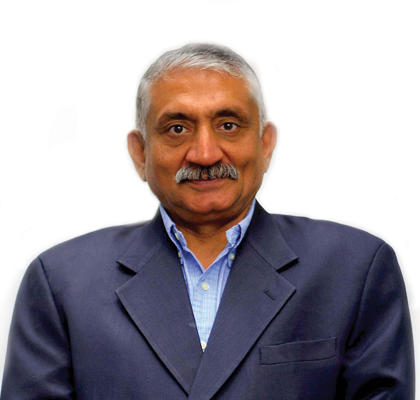
Ajay Khanna
Co-Founder & Forum Chairman, PAFI and
Group Strategic Advisor
Jubilant Bhartia Group
The Jubilant Bhartia Group, has presence in diverse sectors like Pharmaceuticals, Life Science Ingredients and Drug Discovery Services, Performance Polymers, Food Service (QSR), Food, Auto, Consulting in Aerospace and Oilfield Services. Headquarter in India, the Group has presence in the United States, Canada, Europe, China, Singapore, Sri Lanka and Bangladesh. Jubilant Pharmova Limited, Jubilant Ingrevia Limited and Jubilant FoodWorks Limited are the flagship companies of the Group. Ajay joined the Group in 2009.
Ajay was founding Chief Executive Officer (2002-2006) of India Brand Equity Foundation (www.ibef.org). This was a unique Public Private
Partnership initiative to Promote, Project & Position India’s growth story globally. IBEF, under Ajay’s leadership led “India Everywhere” campaign at the Annual Meeting of the World Economic Forum in Davos in 2006. A number of high profile global initiatives were taken during Ajay's four-year stint as the CEO of IBEF, a joint initiative of Ministry of Commerce, Government of India & Confederation of Indian Industry (CII).
Ajay was Deputy Director General (1999-2008) with the Confederation of Indian Industry (www.cii.in), an apex industry association. He held several leadership positions in his career span of over 27 years with the CII & led several key functions at international, national & regional levels. One of the key function was the relationship with the World Economic Forum, which Ajay handled for over 20 years. This included participation at the Annual Meeting of the World Economic Forum in Davos & arranging its annual India Economic Summit.
Ajay also worked with Accenture India as a Partner (2008-2009) responsible for managing relationships with the Governments & Corporates before joining Jubilant Bhartia Group. He has been member of several high level Government delegations, committees and task forces of the World Economic Forum. He was the Vice Chair of South Asia Regional Strategy Group (RSG) of World Economic Forum & is closely involved with the Schwab Foundation for Social Entrepreneur of the Year- India Award. He is a regular at WEF annual meeting in Davos where he has been participating for over 35 years.
In 2008, Ajay Co-Founded Public Affairs Forum of India (www.pafi.in). Since its inception, PAFI has been actively promoting transparent Public Affairs, Advocacy & Policy making. It provides a networking platform and opportunities to exchange views and share experience between corporates and various stakeholders, through panel discussions, seminars, close-door dialogues and the Annual National Forum which Ajay chairs. PAFI’s objective is to redefine the paradigm of engagement for businesses with external stakeholders, from Government to Media to Civil Society and Academia. PAFI is dedicated to raise and maintain standards in Public Affairs, Public Policy & Advocacy and to enable the industry to attain recognition and credibility.
Ajay is also an Adjunct Professor at The Takshashila Institution, Bengaluru.
Ajay is a graduate in Commerce from Shriram College of Commerce & a Degree in Law from University of Delhi & currently lives in Delhi NCR, India. Ajay is married to Renu, a Corporate Lawyer & a Social Worker. Their daughter, Dr Surbhi is a medical Psychiatrist & son, Dr Ankur is a dentist both practising in the US.
Virat Bhatia
President, PAFI and Managing Director
Apple India
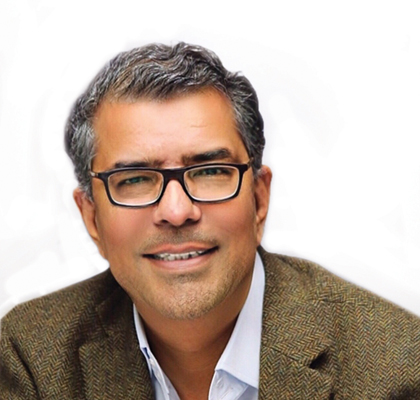
Virat Bhatia
President, PAFI and Managing Director
Apple India
Virat Bhatia serves as the Managing Director at Apple India. He spearheads strategy and policy in India, supporting all of Apple’s investments and business operations. These include Manufacturing, Retail, App Store, Maps, Content, Services and Digital Payments.
Always one to foster collaboration, teamwork, innovation and support young talent, Virat’s career in the ICT sector spans over 25 years across multiple functions. These include general management, strategy, operations, communications and policy. Uniquely, he has led both the Services and Manufacturing side of businesses in Fortune 500 companies. Before Apple,
he served in multiple, senior positions at AT&T, including as the Chairman of AT&T in India and later, as AT&T’s Regional President for South Asia. Prior to that, he was part of the team that was responsible for Coca Cola’s return to India in the mid-90s.
Virat currently serves on the India Executive Leadership Board of the US- India Strategic Partnership Forum (USISPF). He chairs the FICCI National Committee on ICT and Mobile Manufacturing and serves on its National
Executive Committee. In 2014, the UN Secretary General appointed him to the Multistakeholder Advisory Group of the UN Internet Governance Forum (UNIGF). In the past, he has held the position of Vice President of the Commission on ICT of the Paris-based International Chamber of Commerce (ICC), and that of the Vice Chairman of the American Chamber of Commerce in India.
He is an alumnus of the Delhi University and John F. Kennedy School of Government, Harvard University. Virat has also completed Advance Management Programmes at Kellogg’s School of Management, and Wharton Business School.
Ashwini Vaishnaw
Minister for Railways; Communications and Electronics and
Information Technology
Government of India
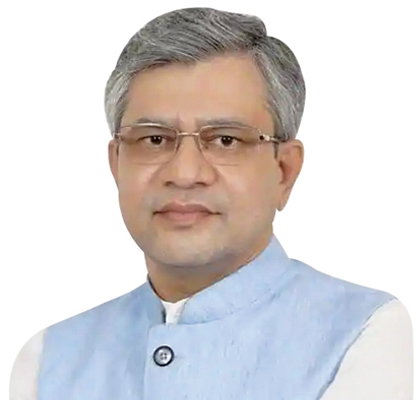
Ashwini Vaishnaw
Minister for Railways; Communications and Electronics and
Information Technology
Government of India
Tanmoy Chakrabarty
Vice President, PAFI and
Group Government Affairs Officer
Tata Sons Pvt Limited
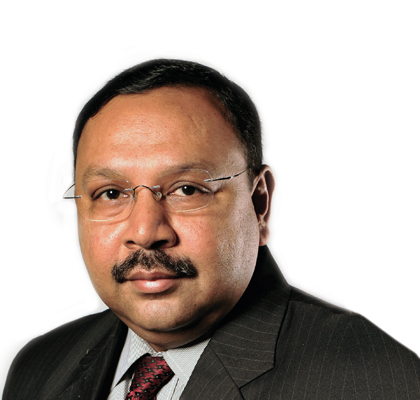
Tanmoy Chakrabarty
Vice President, PAFI and
Group Government Affairs Officer
Tata Sons Pvt Limited
Tanmoy started this assignment on April 01,2018. Here his role is to synergize the Tata Group Company initiatives to Central, State and Local Governments and to develop a “One Tata” approach to the Government Sector.
Earlier for 14 years Tanmoy was the Vice President & Global Head - Government Industry Solutions Unit (ISU) at Tata Consultancy Services Limited (TCS) and was based in New Delhi, India. He built the Government Business for TCS worldwide from 10th January 2004 until 31st March 2018.
He has over 39 years of experience related with Business Development, Sales and Delivery of Integrated IT Solutions and Services to the Government sector and has led many enterprises wide, mission mode and holistic transformational projects in the area of e- Governance in India and other parts of the World. Tanmoy managed more than 305 active clients in the Government Sector for TCS globally and has a team of over 12500 Associates in TCS across 7 Countries.
Prior to TCS, Tanmoy was Head - India Sales and Operations at EDS: Electronic Data Systems, India where he served between 1999 and 2004.
Tanmoy joined Siemens Nixdorf, India in 1996 - 1999 as Vice President - Sales & Marketing at New Delhi and was responsible for All India Sales & Marketing of the various Information Technology Products and Solution and Services.
He has served earlier as a member of the IT Sub-Committee at Assocham, CII, FICCI and PHDCCI. He is on the Defence IT Sub Committee for FICCI. Additionally, he is a Member of the IT Task Force of the Chief of Air Staff, Indian Air Force and a Member of the IT Think Tank for the Chief of Army Staff, Indian Army
He currently is the Chairman of the Infrastructure Sub Committee at FICCI and is the Treasurer and Management Committee Member at Public Affairs Forum of India (PAFI ).
He did his schooling from La Mariniere for Boys, Calcutta and holds a bachelor’s degree in Commerce from St. Xavier's College, Calcutta and is an MBA from IMM, Calcutta. He has completed an Executive Development Program from The Babson College, Boston, Massachusetts, USA.
He resides in Noida, Uttar Pradesh, India with his wife Priti and their two children – Tanushree and Pranoy.
Session 2
Panel
Long-Term Strategy – CEO’s Perspectives
Thursday, 22 September 2022 (1110 – 1200 Hrs)
Instrumental in driving India’s growth all along, private sector would need to play an even larger role in future, unleashing the animal spirits with conducive and predictable policy regime through speedy reforms.
What are the top three policy priorities for India Inc. over the next 25 years? What do the CEO’s expect from their public policy affairs teams? What is the role industry can play in this new growth paradigm?
Deepshikha Dharmaraj
Treasurer, PAFI and
Chief Executive Officer
BCW India Group

Deepshikha Dharmaraj
Treasurer, PAFI and
Chief Executive Officer
BCW India Group
With over 28 years of rich and diverse experience in public relations and communications, Deepshikha Dharmaraj is one of the most respected leaders in the industry in India. As the Chief Executive Officer of Genesis BCW, she oversees the organization and implements its growth strategy. She is also a member of the BCW India Board, which manages the growth strategy of BCW India Group.
Deepshikha provides strategic counsel to the firm’s marquee clients and guides and works closely with client leaders to formulate integrated communications strategies for clients across sectors. A firm believer in conceptualizing measurable and impactful campaigns, she champions creativity and measurement across the organization and the industry.
Anil Padmanabhan
Journalist who tweets @ capitalcalculus
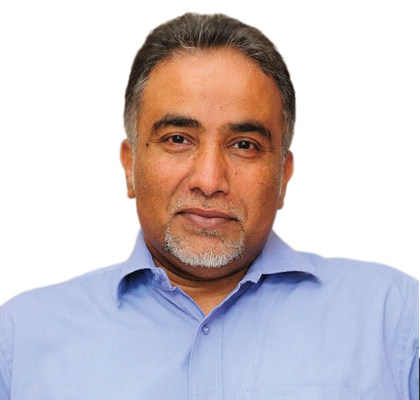
Anil Padmanabhan
Journalist who tweets @ capitalcalculus
Anil Padmanabhan has been a journalist for the last 35 years. He has worked at various media outlets including Mint, India Today, Business Standard and the Press Trust of India. At present he is a columnist for the Economic Times, Khaleej Times and Substack. Anil tweets at @capitalcalculus.
Sunil Bhaskaran
CEO
Air Asia

Sunil Bhaskaran
CEO
Air Asia
Sunil Bhaskaran is the Managing Director & Chief Executive Officer of AirAsia India. He is the Co-Chair, CII National Committee on Civil Aviation and also holds various positions as Director and Distinguished invitees at various committees/prestigious institutions.
Sunil has been a Tata veteran with a career spanning over 35 years with the Tata Group (including as non-executive Chairman/board member of Tata Group companies). He has been the Vice President of Corporate Services at Tata Steel, the Executive in-charge of Tata Steel Global Wires Business, the Principal Executive Officer, Vice President, and Corporate Quality Head at Tata International and Chairman/Board member of various Tata Steel subsidiaries.
Sunil has experience in leading and transforming large global businesses with footprints in India, Thailand, China, Singapore & Sri Lanka.
Under Sunil’s visionary leadership, AirAsia India has grown to be one of India’s benchmark digital airlines focused on innovation, operational excellence, and customer centricity. He provided resilient leadership and spearheaded the recovery of the airline during the Covid pandemic.
Other than being a business leader, Sunil has provided leadership in the areas of CSR, Sustainability, Sports, Tata Relief and Municipal Services at Jamshedpur.
Sunil has completed his Engineering from IIT, Delhi and MBA from IIM, Calcutta. He is passionate about Music, Football, Golf and Cooking.
Jason Oxman
President & CEO
The Information Technology Industry Council

Jason Oxman
President & CEO
The Information Technology Industry Council
Jason Oxman is President and CEO of the Information Technology Industry Council (ITI), the global trade association for the tech sector, representing the world’s most innovative companies. Jason brings more than 25 years of experience as a globally recognized leader in technology advocacy and serves as the leading representative of the tech industry during a consequential time for the industry.and spearheaded the recovery of the airline during the Covid pandemic.
Pranshu Singhal
Founder and Director
Karo Sambhav
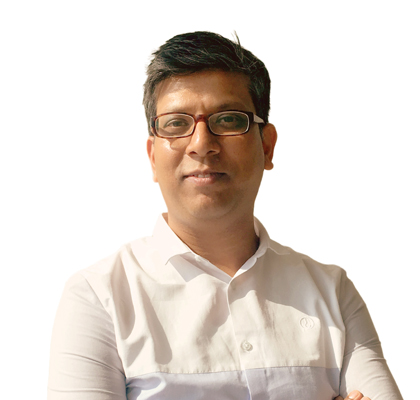
Pranshu Singhal
Founder and Director
Karo Sambhav
Pranshu is the Founder of Karo Sambhav which designs and implements transformative Circular and EPR solutions by collaborating with producers/brands. Karo Sambhav has been creating a grass-root ecosystem to set up robust India-wide solutions on collection, recycling and secondary material management of multiple types of waste including e-waste, plastics waste, batteries waste and glass waste. Its technology platform and systems foster good governance, fairness, trust, transparency, and traceability.
Prior to Karo Sambhav he has worked as Director, Digital Learning Strategy for Microsoft, and as Head, Sustainability for Nokia. He was recently conferred the ‘Social Entrepreneur of the Year 2021 India’ award by the Schwab Foundation, a sister organization of World Economic Forum, and the Jubilant Bhartia Foundation. He is a Aspen Fellow, a Ashoka Fellow, a Chevening Gurukul Fellow, and a Aspire Circle Fellow. Pranshu has a Master’s in Environmental Management and Policy from International Institute for Industrial Environmental Economics (IIIEE), Sweden.
Upasana Taku
Founder & COO
Mobikwik

Upasana Taku
Founder & COO
Mobikwik
Upasana Rupkrishan Taku is the Chairperson of our Board, Executive Director, Co-Founder and COO of our Group. She Co-Founded MobiKwik with a vision to transform the digital payments landscape in India, which was close to nil when we started in 2009. She believes that the Indian Fintech opportunity will be at least $1tn by 2025 and that MobiKwik will be a significant part of it.
Upasana is our Closer who loves getting Deals/Projects done in record time while running a tight ship. She holds a Bachelor’s Degree in Industrial Engineering from Punjab Technical University and a Master’s Degree in Management Science and Engineering from Stanford University. She has 17+ years of experience in product, payments and financial services. Prior to her entrepreneurial journey, she worked as a Product Manager at PayPal, San Jose in the Financial Services, Global Payments and Risk divisions. She also had a stint with HSBC, San Diego working in the Product team of their auto finance division.
She has always been passionate about creating an impact at the grassroot levels, which brought her back to India from the US in 2008. Her hard work and desire to serve the community have made her an inspirational figure who has been recognized many times as one of India’s leading Tech founders.
Ishteyaque Amjad
Past President & Managing Committee Member, PAFI and
Managing Director, Policy & Government Affairs
Abbott Healthcare Pvt. Ltd
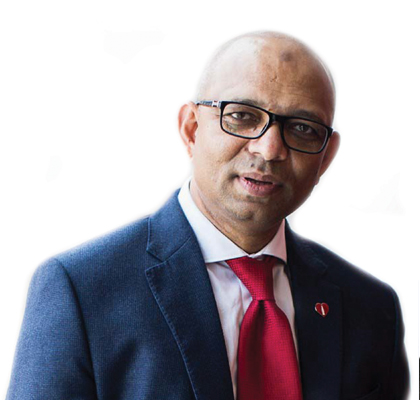
Ishteyaque Amjad
Past President & Managing Committee Member, PAFI and
Managing Director, Policy & Government Affairs
Abbott Healthcare Pvt. Ltd
Ishteyaque Amjad, Immediate Past President PAFI, is the Group Global Head of Corporate Affairs at Godrej Group.
He spearheads the practice, and his charter includes government relations, policy advocacy and external affairs. With a career spanning over two decades, Ishteyaque has had the opportunity to work across a diverse set of industries through stints both in India and overseas in organizations such as Coca-Cola, Cargill, HCL and Essar Group. He started his career at the Indian Army.
As one of India's leading practitioners of public/corporate affairs, Ishteyaque is passionate about social issues and is a strong advocate for deploying business solutions to address societal challenges. He is often described as someone with a capitalist's mind and an activist's heart!
Ishteyaque serves on the Advisory Board of AIESEC India, he is a member of CII’s National Committee on Real Estate and FICCI’s National FMCG Committee. He has served on the Board of Management of TERI School of Advanced Studies and has been a jury at the Cannes Lions the Festival of Creativity. He completed his postgraduation from SIMS Pune, graduated with a bachelor’s degree in Economics
from AMU, Aligarh and is also an alumnus of the Indian Military Academy, Dehradun.
With a flair for words, Ishteyaque prefers poetry and anecdotes as the perfect medium for storytelling.
Session 3
Plenary
Partner State – Tamil Nadu
Thursday, 22 September 2022 (1205 - 1255 Hrs)
Tamil Nadu, the second largest state economy accounting for one-tenth of India’s GDP. Thanks to highest number of factories and industrial workers, investment-friendly policies and focus on skilling, a range of sectors like electronics, IT and leather, etc. are thriving in the state. Amongst top ten automobile hubs globally, it is now building a robust Electric Vehicle ecosystem.
What is Tamil Nadu doing to attract, celebrate and sustain investments, both domestic and foreign while also honing, attracting, and retaining talent? What are the sunrise sector? What is the State’s vision for next 25 years?
Aravamudhan K
Executive Director, Government Relations, India
Star India Pvt Ltd
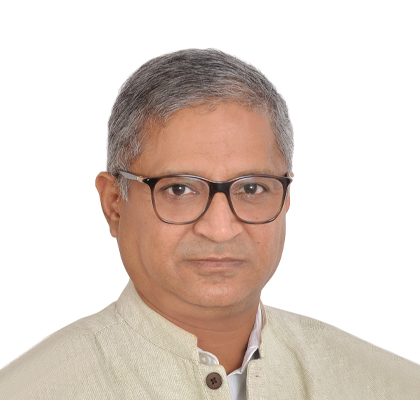
Aravamudhan K
Executive Director, Government Relations, India
Star India Pvt Ltd
aka Aru, is the “Executive Director (Government Relations) for Disney Star India. In this role Aravamudhan handles corporate affairs (includes license-related matters, regulatory compliance), advocacy, government relations, public policy, industry relations & regulatory-communications.
Aru has a varied work experience starting with the Government of India (from 1989-92) and a fourteen year long experience in television journalism (1993-2006) and an eventful career with Disney Star India from 2007 onwards.
Apart from his professional activities, Aru also used to contribute regularly to various mainstream national newspapers and journals. His blog on CNN-IBN’s website, “THE WANDERER” was a popular blog where he regularly wrote on various news & current affairs, social and contemporary issues.
Priya Sahgal
Senior Executive Editor
NewsX

Priya Sahgal
Senior Executive Editor
NewsX
Priya Sahgal is the Senior Executive Editor at NewsX where she anchors two current affairs shows - The Roundtable & Cover Story. After joining the profession in 1992, she has been a journalist for nearly three decades working at India Today, The Outlook and Sunday magazines. Her forte is political journalism, she has covered both the mainstream parties, Congress & BJP as well as the Vajapayee and Manmohan Singh PMOs.
She has also written a book The Contenders that profiles 16 GenNext leaders from Rahul Gandhi, Akhilesh Yadav, Yogi Adiyanath, Himanta Biswa Sarma, Sachin Pilot, Arvind Kejriwal to the Badals (Published by Simon & Schuster). Her TV shows have won ENBA awards twice & she was also awarded the Young Achiever Award by FLO (FICCI Ladies Organisation). Priya also won the Hansard Fellowship given by the British Council of India which involved a course at the London School of Economics and an internship at the House of Lords.
Priya did her schooling at the Welham Girls School Dehra-Dun, followed by a BA & MA (Eng Hons) from St Stephen's College, Delhi University
S Krishnan
Additional Chief Secretary, Industries, Investment Promotion
and Commerce Department
Government of Tamil Nadu
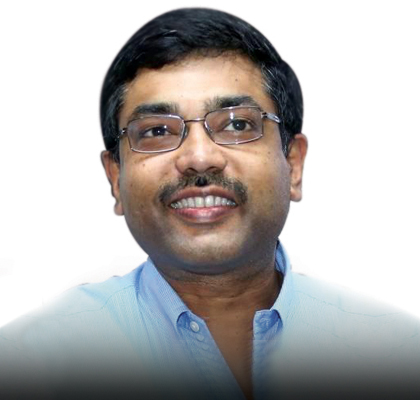
S Krishnan
Additional Chief Secretary, Industries, Investment Promotion
and Commerce Department
Government of Tamil Nadu
Mr. S. Krishnan is currently the Additional Chief Secretary, Industries Department, Government of Tamil Nadu.
With a service record of more than 30 years, Mr. Krishnan holds many accomplishments, such as serving as Additional Chief Secretary, Finance to Government of Tamil Nadu, the Senior Advisor in the Office of the Executive Director for India, Sri Lanka, Bangladesh and Bhutan of IMF, representing Government of India in the G20 Expert Groups on International Financial Architecture and Global Financial Safety Nets, and assisting in preparing the Union Budget as well as the Tamil Nadu State Budget during multiple years, to name a few.
Through his multiple roles as a public administrator, Mr. Krishnan has demonstrated expertise in aspects of policy making, public finance, and socio-economic development issues.
He holds a Bachelor of Arts (Honours) from St. Stephen’s College, Delhi University and Master of Arts in Economics from Annamalai University.
Pooja Kulkarni
MD & CEO
Guidance Tamil Nadu
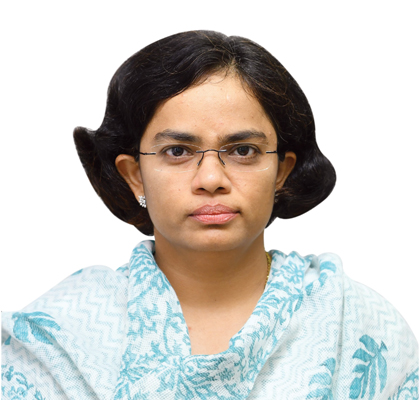
Pooja Kulkarni
MD & CEO
Guidance Tamil Nadu
She has served in various capacities with departments like Rural Development, Chennai Corporation, Elections, School Education, Industries, and Finance Department over the past 16 years. Prior to joining Guidance, she was the Special Secretary to the Government of Tamil Nadu Finance Department and CEO of Tamil Nadu Infrastructure Development Board (TNIDB). As the Special Secretary, she was also part of the Governing Body/Board of Directors of various statutory bodies including Guidance, Chennai Smart City Limited, New Tirupur Area Development Corporation Limited, ELCOT, TEDA, TANCEM, TDFC and TNUIFSL among others. As CEO, TNIDB, she has structured several Public-private partnership (PPP) Projects in urban infrastructure and initiated detail Project Reports for key projects in Greater Chennai Corporation.
Amit Kumar Singh
Managing Committee Member, PAFI and
Group Head - Corporate Affairs
Asian Paints Ltd

Amit Kumar Singh
Managing Committee Member, PAFI and
Group Head - Corporate Affairs
Asian Paints Ltd
Amit is responsible for driving Asian Paints strategic initiatives and engagements in India and International markets spread across Africa, Middle East, South Asia and Asia Pacific. Amit works towards shaping conducive policy landscape, partnerships, market access initiatives, as also, strategic investment, merger/acquisition decisions of the Asian Paints Group. Amit is currently elected as the Chairman of the Government engagement committee at Indian Paint Association. He also plays a very active and value adding role in various committees in sectoral specific committees and councils.
Prior to joining Asian paints, Amit was Director Government Affairs, South Asia for Medtronic wherein he was extensively involved in public private partnerships, bilateral and multilateral dialogues, Market Access and healthcare policy. Amit was awarded with the ‘Needle Mover’ title by MTAI (Medical technology association of India). Prior to Medtronic, Amit was heading the Government Affairs (India) for Mondelez India. Amit also represented the region AMEA (Asia pacific, middle-east and Africa) in the global center for excellence for Government and Public Affairs where he contributed to the global strategy for managing public and government affairs activities around the world. At Mondelez, Amit was awarded the regional (AMEA) award titled ‘AMEAZing Award’ for successfully managing Government relations. Amit was elected as the Vice President of Indian Confectionary Manufacturers Association (ICMA).
Earlier, Amit had worked in various capacities in Asian Paints, Ingersoll Rand, Confederation of Indian Industry (CII) and Centre for Land Warfare Studies (CLAWS) - An Indian Army think tank. Amit had lead and been instrumental in setting up large greenfield investment projects and affecting strategic business partnerships in the private and public sector.
Amit is an acclaimed author. He has about 35 publications (Indian and international) to his credit. Amit is an M.Phil in International relations from CIPOD, Jawaharlal Nehru University (JNU), New Delhi. He obtained his Master’s degree in History and Bachelors in Science.
Amit enjoys Yoga, analyzing developments in International, national political, economic and social space. He also likes reading and discussing philosophy, human evolution and advancement in Technology.
Amit is married to Garima who heads Global corporate Affairs for Hero Motocorp. They are blessed with two Sons -Adhiraj & Ahaan.
Session 4
Panel
India – The New Hub of Global Manufacturing
Thursday, 22 September 2022 (1345 – 1445 Hrs)
With schemes like Production-Linked Incentive (PLI) schemes and Gati-Shakti, India is well poised to attract some mega-investments in manufacturing as the global supply chains are being reshaped and opportunities for relocation arise, post-Covid. However, India needs to do much more to overcome hesitation from fence-sitters and to out-compete other alternative emerging destinations.
What else do the investors want and what’s brewing up in the policy crucible? How do we realize the vision of Aatmanirbhar Bharat while also carving out a larger share of the global trade pie?
Tanmoy Chakrabarty
Vice President, PAFI and
Group Government Affairs Officer
Tata Sons Pvt Limited

Tanmoy Chakrabarty
Vice President, PAFI and
Group Government Affairs Officer
Tata Sons Pvt Limited
Tanmoy started this assignment on April 01,2018. Here his role is to synergize the Tata Group Company initiatives to Central, State and Local Governments and to develop a “One Tata” approach to the Government Sector.
Earlier for 14 years Tanmoy was the Vice President & Global Head - Government Industry Solutions Unit (ISU) at Tata Consultancy Services Limited (TCS) and was based in New Delhi, India. He built the Government Business for TCS worldwide from 10th January 2004 until 31st March 2018.
He has over 39 years of experience related with Business Development, Sales and Delivery of Integrated IT Solutions and Services to the Government sector and has led many enterprises wide, mission mode and holistic transformational projects in the area of e- Governance in India and other parts of the World. Tanmoy managed more than 305 active clients in the Government Sector for TCS globally and has a team of over 12500 Associates in TCS across 7 Countries.
Prior to TCS, Tanmoy was Head - India Sales and Operations at EDS: Electronic Data Systems, India where he served between 1999 and 2004.
Tanmoy joined Siemens Nixdorf, India in 1996 - 1999 as Vice President - Sales & Marketing at New Delhi and was responsible for All India Sales & Marketing of the various Information Technology Products and Solution and Services.
He has served earlier as a member of the IT Sub-Committee at Assocham, CII, FICCI and PHDCCI. He is on the Defence IT Sub Committee for FICCI. Additionally, he is a Member of the IT Task Force of the Chief of Air Staff, Indian Air Force and a Member of the IT Think Tank for the Chief of Army Staff, Indian Army
He currently is the Chairman of the Infrastructure Sub Committee at FICCI and is the Treasurer and Management Committee Member at Public Affairs Forum of India (PAFI ).
He did his schooling from La Mariniere for Boys, Calcutta and holds a bachelor’s degree in Commerce from St. Xavier's College, Calcutta and is an MBA from IMM, Calcutta. He has completed an Executive Development Program from The Babson College, Boston, Massachusetts, USA.
He resides in Noida, Uttar Pradesh, India with his wife Priti and their two children – Tanushree and Pranoy.
Virat Bhatia
President, PAFI and
Managing Director, Apple India

Virat Bhatia
President, PAFI and
Managing Director, Apple India
Virat Bhatia serves as the Managing Director at Apple India. He spearheads strategy and policy in India, supporting all of Apple’s investments and business operations. These include Manufacturing, Retail, App Store, Maps, Content, Services and Digital Payments.
Always one to foster collaboration, teamwork, innovation and support young talent, Virat’s career in the ICT sector spans over 25 years across multiple functions. These include general management, strategy, operations, communications and policy. Uniquely, he has led both the Services and Manufacturing side of businesses in Fortune 500 companies.
Before Apple, he served in multiple, senior positions at AT&T, including as the Chairman of AT&T in India and later, as AT&T’s Regional President for South Asia. Prior to that, he was part of the team that was responsible for Coca Cola’s return to India in the mid-90s.
Virat currently serves on the India Executive Leadership Board of the US- India Strategic Partnership Forum (USISPF). He chairs the FICCI National Committee on ICT and Mobile Manufacturing and serves on its National
Executive Committee. In 2014, the UN Secretary General appointed him to the Multistakeholder Advisory Group of the UN Internet Governance Forum (UNIGF). In the past, he has held the position of Vice President of the Commission on ICT of the Paris-based International Chamber of Commerce (ICC), and that of the Vice Chairman of the American Chamber of Commerce in India.
He is an alumnus of the Delhi University and John F. Kennedy School of Government, Harvard University. Virat has also completed Advance Management Programmes at Kellogg’s School of Management, and Wharton Business School.
Dr Ajay Kumar
Secretary
Ministry of Defence
Government of India

Dr Ajay Kumar
Secretary
Ministry of Defence
Government of India
Dr Ajay Kumar joined the Indian Administrative Service in 1985 and is presently Defence Secretary of India since August 2019.
Dr Ajay Kumar is B Tech in Electrical Engineering from the Indian Institute of Technology, Kanpur, India. He is M.S. Applied Economics from the University of Minnesota, USA and PhD in Business Administration from Carlson School of Management, University of Minnesota, USA. He was also conferred Hon. Doctor of Philosophy by Amity University in 2019.
Served in the State Government of Kerala in early years, he served in the Ministry of Communications and IT, as the Director General, National Informatics Centre (NIC) and as the Additional Secretary, Department of Electronics and Information Technology. Prior to assuming current appointment, he served in the Ministry of Defence as the Secretary, Department of Defence Production, from December 2017 to August 2019.
Dr Ajay Kumar has, to his credit, several publications in refereed national and international journals including at ICIS, IEEE, IJEC, HICCS etc. He was awarded the “Silver Elephant” medallion by National Scouts and Guides by His Excellency the President of India, in 1994. In the same year he also earned a citation by the Hon’ble Prime Minister of India and was adjudged the “Outstanding Young Person” by the Junior Chamber of Kerala.
He earned the Graduate School Fellowship by the University of Minnesota, USA for the years 2004 and 2005. He was adjudged as the “Electronics Leader of the Year” for the year 2012 for promotion of electronics industry in the country. Was awarded the Technovation Sarabhai Award by IESA in 2015 for his outstanding contribution to ESDM Industry. Was awarded the ‘Champion of Change’ Award by CEAMA in 2017.
Was also awarded Distinguished Alumnus Award (DAA)-2019 of IIT Kanpur. He was conferred Fellowship of the Indian National Academy of Engineering (INAE) for his outstanding contributions to engineering and dynamic leadership in engineering domain which have immensely contributed for the faster development of the country with effect from November 1, 2021.
S Aparna
Secretary, Pharmaceuticals
Ministry of Chemicals & Fertilizers
Government of India
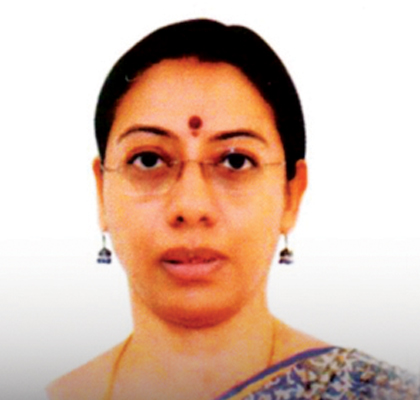
S Aparna
Secretary, Pharmaceuticals
Ministry of Chemicals & Fertilizers
Government of India
Ms S Aparna a 1988-batch IAS officer of Gujrat cadre, has assumed charge as Secretary in the Department of Pharmaceuticals Ministry of Chemicals and Fertilizers,Govt.of India.
Ms Aparna has replaced Dr PD Vaghela who superannuated on 30 September 2020. Ms S Aparna was appointed to the post of Executive Director, World Bank in 2017, representing the Constituency of India, Bangladesh and Sri Lanka. In 2019, she was given a proforma promotion as Additional Chief Secretary (ACS) while she was on deputation in Washington DC as Executive Director, World Bank.
She has also served as the Principal Secretary to the then Gujarat CM .
Born in 1963, new Pharma Secretary has also served both Centre and the state on several important assignments including in the Department of finance, planing , Urban and Housing Development, Textile etc.
Anurag Jain
Secretary – DPIIT
Ministry of Commerce & Industry
Government of India
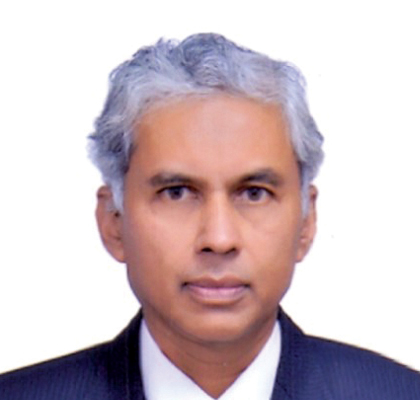
Anurag Jain
Secretary – DPIIT
Ministry of Commerce & Industry
Government of India
S Krishnan
Additional Chief Secretary,
Industries, Investment Promotion and Commerce Department
Government of Tamil Nadu

S Krishnan
Additional Chief Secretary,
Industries, Investment Promotion and Commerce Department
Government of Tamil Nadu
Mr. S. Krishnan is currently the Additional Chief Secretary, Industries Department, Government of Tamil Nadu.
With a service record of more than 30 years, Mr. Krishnan holds many accomplishments, such as serving as Additional Chief Secretary, Finance to Government of Tamil Nadu, the Senior Advisor in the Office of the Executive Director for India, Sri Lanka, Bangladesh and Bhutan of IMF, representing Government of India in the G20 Expert Groups on International Financial Architecture and Global Financial Safety Nets, and assisting in preparing the Union Budget as well as the Tamil Nadu State Budget during multiple years, to name a few.
Through his multiple roles as a public administrator, Mr. Krishnan has demonstrated expertise in aspects of policy making, public finance, and socio-economic development issues.
He holds a Bachelor of Arts (Honours) from St. Stephen’s College, Delhi University and Master of Arts in Economics from Annamalai University.
Raman Sidhu
Founding Member & Past President, PAFI and
EBG Federation, India
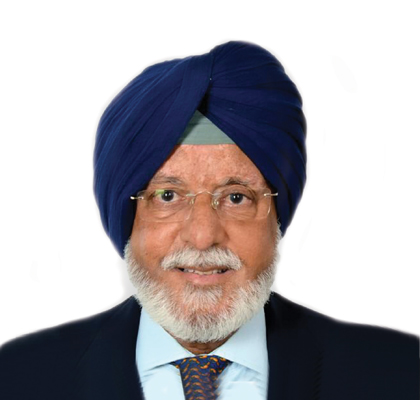
Raman Sidhu
Founding Member & Past President, PAFI and
EBG Federation, India
He is an Independent Director on the Boards of Selan Exploration Technologies Limited as well as Cremica Food Industries Limited, Senior Adviser to TMF-Group & to Accord Group, a senior executive search firm. He is a Life Trustee of the Foundation for Aviation & Sustainable Tourism & a Member of the Council of SpeakIn Bureau. He is a Member of the Management Committee of the U. K. Chartered Accountants Association of India.
Mr. Sidhu’s career spanned over 3 decades as an Investment Banker & a wholesale Corporate Banker. He has also served as an Independent Director on the Boards of various MNCs including G4S & Deutsche Postbank Home Finance as well as PSUs such as BHEL, NHPC, IILFS & NTC. He has served as a Member of the Core Committee on Corporate Governance of 5 of the Ministry of Finance & Corporate Affairs.
He has in the past also served as a Consultant to the Industry Minister of Trinidad & Tobago on behalf of the Commonwealth Secretariat, London.
Mr. Raman Sidhu, FCA read Economic (Honours) at St. Stephen’s College, Delhi University. He qualified as a Chartered Accountant from The Institute of Chartered Accountants in England & Wales (ICAEW) & is a Fellow if the ICAEW & ICAI.
Session 5
Panel
India@100 - Target 10% of global trade
Thursday, 22 September 2022 (1450 – 1530 Hrs)
India currently has a 1.8 % share of global merchandise exports. The target for the government is to increase India’s share in global trade to 10% and the share of exports to GDP to 25%. In the recent past India has been playing a critical role in strengthening multilateral and bilateral platforms for global trade. The country played a pivotal role in the success of the WTO ministerial meeting. After signing a FTA with UAE and an early harvest with Australia, India is pursuing many more bilateral deals including with UK. India’s annual exports exceeded USD 400 billion last fiscal.
What should be the priorities of India’s trade policy in the pursuit of emerging as a global trade leader? How can Indian businesses leverage and participate in the global value chains? How can Indian exports reach the trillion-dollar mark?”
Medha Girotra
Managing Committee Member, PAFI and
Vice President, Public Policy, South Asia
Mastercard India Services Pvt Ltd

Medha Girotra
Managing Committee Member, PAFI and
Vice President, Public Policy, South Asia
Mastercard India Services Pvt Ltd
An advocacy specialist, Medha heads Public Policy and CSR for South Asia at Mastercard. With a strong background in reputation management, Medha is spearheading Mastercard’s various collaborations with the government and non-government agencies towards accelerating digital adoption, improving credit access to the underbanked and leveraging new emerging technologies for inclusive growth.
An industry veteran with over 20 years in work experience, Medha believes that awareness and knowledge are as critical as access to new solutions and all three are at the core of rapid adoption of new technologies as well as in enhancing credit facilities to people at large across all sections of society.
A firm supporter of evidence-based advocacy, Medha is a key driver across several projects at Mastercard in partnership with the government, think tanks and academia to evaluate and assess the lacunae in digitisation and credit access of MSME’s, farmers, and artisans with a special focus on women entrepreneurs, a topic close to her heart.
Her other focus areas of work include spreading awareness and encouraging adoption of safe and secure platforms given the rapid digitisation especially in financial services industry. A strong advocate of ‘emerging technologies for inclusive growth’ she feels any technological deployment in financial services must be open, equitable and must lead to ease of living.
TS Vishwanath
Past President & Founding Member, PAFI and
Principal Adviser, ASL - Legal

TS Vishwanath
Past President & Founding Member, PAFI and
Principal Adviser, ASL - Legal
He focusses on all policy and regulatory issues and advices industry and governments on the impact of global economic and trade policies. He is also a contributor of research papers to think tanks and writes analytical pieces in newspapers.
Ambassador Navdeep Suri
Distinguished Fellow, ORF
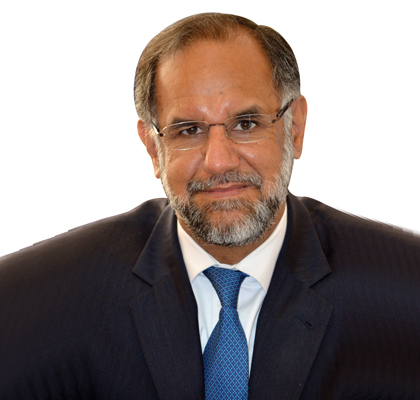
Ambassador Navdeep Suri
Distinguished Fellow, ORF
Navdeep Suri is Distinguished Fellow at the Observer Research Foundation. He is an advisor to several prestigious international organizations and an independent director on the board of reputed companies. He is also Professor of Eminence at Guru Nanak Dev University in Amritsar.
Navdeep Suri completed a distinguished 36-year career in the Indian Foreign Service in 2019, having served in India’s diplomatic missions in Cairo, Damascus, Washington, Dar es Salaam and London and as India’s Consul General in Johannesburg.
He has headed the West Africa and Public Diplomacy departments at the Ministry of External Affairs and was India’s High Commissioner to Australia and Ambassador to Egypt and UAE. In a rare gesture, the President of UAE conferred on him the Order of Zayed II, the country’s second-highest civilian award. His innovative use of social media in public diplomacy in 2010 also received extensive recognition and two prestigious awards.
Navdeep Suri has learnt Arabic and French, has a master’s degree in economics and has written on India’s Africa policy, on the Middle East and the Indo-Pacific, on Public Diplomacy and on the IT outsourcing industry. He has also co-edited the ORF-Global Policy book ‘A 2030 Vision for India’s Economic Diplomacy. His English translations of his grandfather Nanak Singh’s classic Punjabi novels have been published by Penguin as ‘The Watchmaker’ and by Harper Collins as ‘A Life Incomplete’ ‘Khooni Vaisakhi’ and ‘Hymns in Blood.’As Principal Adviser with APJ-SLG Law Offices, he assists the Indian Government on some policy and regulatory issues and advices industry on the impact of global economic and trade policies. He also writes a regular column - Trade Matters – for the Business Standard.
Dr Arpita Mukherjee
Professor
ICRIER
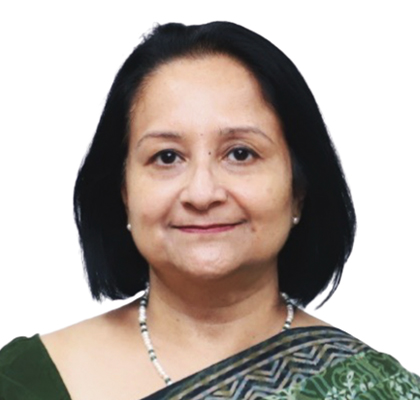
Dr Arpita Mukherjee
Professor
ICRIER
Dr. Arpita Mukherjee is a Professor at ICRIER. She has over 25 years of experience in policy-oriented research, working closely with the government in India and policymakers in the European Commission and its member states, United States (US), Association of Southeast Asian Nations (ASEAN) and in East Asian countries. She has conducted studies for international organizations, Indian industry associations, non-government organisations and companies.
Her areas of expertise include trade and investment; trade agreements; services; special economic zones; economic corridors; retail and food supply chain; beverages (alcoholic & non-alcoholic) organic agriculture, start-ups, entrepreneurs; e-commerce and cross-border labour mobility.
She specialises in sector and product-specific market trends, go-to market strategy, and government policies.
Dr Mukherjee has a PhD in Economics from the University of Portsmouth, UK, and prior to joining ICRIER she worked with the UK-based think tank - Policy Studies Institute and taught at the University of Portsmouth. She has over 80 publications including national and international referred journals, books and book chapters and government reports. Dr. Mukherjee is a member of various government committees and policy panels and is in the editorial board of 10 journals. Dr. Mukherjee has published study reports on alcoholic beverages titled “Developing Principles for Regulation & Pricing of Alcoholic Beverages Sector in India” and “Liberalisation of Wine Trade under the India-Australia CECA”. She has worked on taxes and including GST for sectors like non-alcoholic beverages. She has presented her work in various conferences and seminar and is in the advisory board of industry associations and non-government organisations. She is a regular contributor to newspapers and magazines.
Dr Harsha Vardhana Singh
Chairman, IKDHVAJ Advisers LLP and
Former DDG, WTO
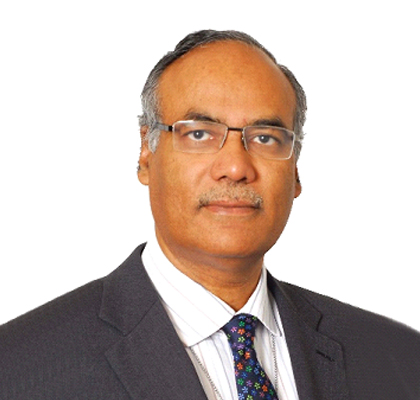
Dr Harsha Vardhana Singh
Chairman, IKDHVAJ Advisers LLP and
Former DDG, WTO
Dr Harsha Vardhana Singh, Chairman, Ikdhvaj Advisers LLP, a boutique consulting firm on trade policy, industrial policy and regulatory policy.
Dr. Harsha Vardhana Singh has extensive international and national experience on trade and investment matters. In two separate stints he worked at the GATT/WTO for a total of 20 years (eight years as Deputy Director General, WTO). He was first the Economic Adviser and then Secretary Telecom Regulatory Authority of India in its initial 8 years.
He has been Executive Director of Brookings India, Senior Fellow at Think Tanks in Switzerland and Canada, taught at Universities in the US and China, been Chair/Secretary of GATT/WTO Dispute Settlement Panels, and member/Chair of High-Level Expert Groups within India and abroad to address inter alia policy concerns relating to international trade policy, industrial policy, competition and regulatory policy.
Dr. Singh’s current expert engagements include: Senior Fellow, Council on Emerging Market Enterprises, The Fletcher School, Tufts University, USA; Member of the International Trade Policy Council of the Confederation of Indian Industries (CII); Non-Resident Senior Fellow, South Asia Center, Atlantic Council, Washington, DC; Senior Research Affiliate, Berkeley APEC Study Center, US; Chairperson, Private Sustainability Standard (PSS) Platform, an initiative launched by the Government of India; and, Member of the Advisory Board of UNCTAD’s ”Transnational Corporations Journal”.
His other high level expert engagements in the past ten years include: Member, High Level Advisory Group on International Trade, established by Government of India; Member, Competition Law Review Committee to revise the Competition Act, established by Government of India - included responsibility as Chairperson, Working Group on New Age Markets and Big Data; Chairman, Governing Body of the Agricultural Economics Research Center, University of Delhi; Senior Adviser to the Global Commission on Internet Governance on the topic, “Governance of International Trade and the Internet: Existing and Evolving Regulatory Systems”; Member, High Level Board of Experts on the Future of Trade Governance, set up by Bertelsmann Stiftung; Member, Expert Enquiry Committee Set Up by UK All Party Parliamentary Group on Trade Out of Poverty on “Can the Commonwealth help countries trade out of poverty?”; Member, Global Agenda Council (GAC) on Trade and Foreign Direct Investment, established by the World Economic Forum (2014-2016) - also worked closely with GAC on Competitiveness; Senior Advisor, Asia Society Policy Institute Task Force on “India and APEC: Charting a Path to Membership”.
Dr. Singh has an M. Phil and D. Phil in Economics from Oxford University, U.K., after an MA and BA (Hons) in Economics from Delhi University, India.
Amit Yadav
Additional Secretary, Dept. of Commerce
Ministry of Commerce & Industry
Government of India

Amit Yadav
Additional Secretary, Dept. of Commerce
Ministry of Commerce & Industry
Government of India
- His educational qualifications are that he is MBA and LLB
- Belongs to 1991 batch of Indian Administrative Services, AGMUT Cadre
- During the last more than 30 years of his career, Shri Amit Yadav has worked in various positions in State Governments, Central Government and International Organizations.
- From 1993 to 2006 he worked in various capacities in different Departments of State Governments of Delhi, Goa and Arunachal Pradesh.
- He has also worked as Civil Affairs Officer in United Nations and as Counsellor at the Permanent Mission of India (WTO) in Geneva.
- From 2019 to 2021 he was Director General in Directorate General of Foreign Trade.
- At present, he is heading Trade Negotiations Multilateral Division in Department of Commerce, Ministry of Commerce and Industry
Dr KC Ravi
Past President & Co-Founder PAFI and
Chief Sustainability Officer
Syngenta India Ltd
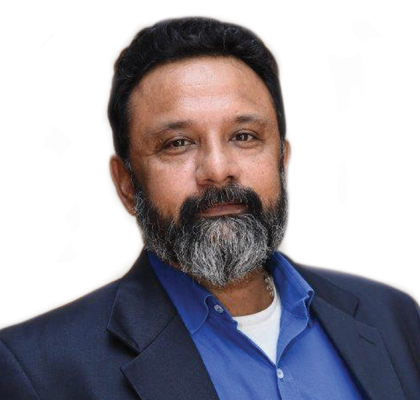
Dr KC Ravi
Past President & Co-Founder PAFI and
Chief Sustainability Officer
Syngenta India Ltd
Prior to joining Syngenta, Ravi was heading the Government and Public Policy function for the Cummins Group of companies, the world’s leading manufacturer of engines and related technologies. Ravi has also worked in Monsanto as the head of Government and Public Affairs and in DHL Express as the Head of Customs and Regulatory Affairs. In these roles his principal responsibility was to influence policy change to provide a conducive environment for the growth of the industry. He was also advising DHL network in the South-East Asian Region. Ravi is also the Chairman of Crop Life India (CLI)
Ravi has been a regular contributor and has written numerous articles in all leading financial dailies like Business Standard, Economic Times, Times of India and Financial Express. He has also contributed a paper to the World Bank Report on “Harmonization of Customs Procedures”. Besides he has written policy papers on trade and tax reforms as well as economic policy issues for the CII for submission to the government.
Session 6
Plenary
My Vision of India @ 100 - Role of Women in Business and Policy Making for next 25 years
Thursday, 22 September 2022 (1540 – 1620 Hrs)
Constituting half of the population, women’s role in economic activity remains underappreciated, due to lower levels of participation and visibility in formal sector. Likewise, policy frameworks may be shorn of gender-sensitivity unless factored in at the design stage itself.
How can we foster a sustainable and trusted environment free from violence and discrimination that offers equal opportunities for women to thrive in business and policy? What type of innovative instruments and institutions do we need to adopt?
Shweta Rajpal Kohli
Managing Committee Member, PAFI and
Chief Public Policy Officer
Sequoia Capital India & South East Asia
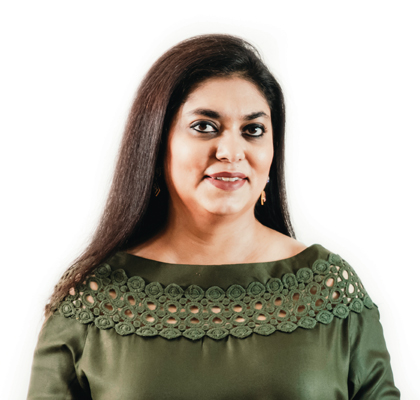
Shweta Rajpal Kohli
Managing Committee Member, PAFI and
Chief Public Policy Officer
Sequoia Capital India & South East Asia
As the Head of Public Policy, Shweta works with government stakeholders to craft policies that help accelerate the growth momentum of the startup ecosystem in India & Southeast Asia. She advises portfolio companies on managing regulatory risks and unlocking new levers of growth. She also helps create public policy partnerships that align the vision of startup founders and governments.
Before joining Sequoia, Shweta led the public policy function for Salesforce and Uber across South Asia, with a key focus on data privacy, cloud computing regulations, digital payments and ridesharing regulations.
Shweta is a Board Member of WE-Hub, an accelerator for women entrepreneurs set up by the Telangana Government. She is the Co-Chair of the Edtech Taskforce set up by industry body FICCI. She is a Governing Council Member of the Internet and Mobile Association of India (IAMAI).
Shweta was ranked among IMPACT Magazine’s 50 Most Influential Women in 2018. She received the FICCI FLO Women in Leadership Award in 2020, Women in Excellence Award by the Women Economic Forum in 2019, and the Communicator of the Year by Association of Business Communicators of India (ABCI) in 2011.
A British Chevening scholar, she was also awarded the International Visitor Leadership Program (IVLP) Fellowship - the US Department of State’s professional program for global leaders. She was chosen among 45 global leaders for the Asian Forum on Global Governance (AFGG) Fellowship.
Before joining the policy world, Shweta spent two decades as a business journalist and TV news anchor. During her journalism career, she received several honours, including the Ramnath Goenka Journalism Award for Broadcast Journalism by President of India Pratibha Patil and Business Standard-Seema Nazareth Award for Young Print Journalists by President of India KR Narayanan.
Shweta has completed mid-career programs from Wharton Business School, INSEAD Business School, and the University of Westminster. She completed her Bachelors in Journalism from Lady Shri Ram College, holds a Masters in Political Science from Delhi University and a distance learning MBA from XLRI, Jamshedpur.
Shweta is a regular speaker at leading conferences, including World Economic Forum India Summit, MindMine Summit, CyFy India, and the UN Gender Equality Summit. She lives in New Delhi with her husband and two children.
Navika Kumar
Group Editor, Times Network,
Editor-In-Chief
Times Now Navbharat
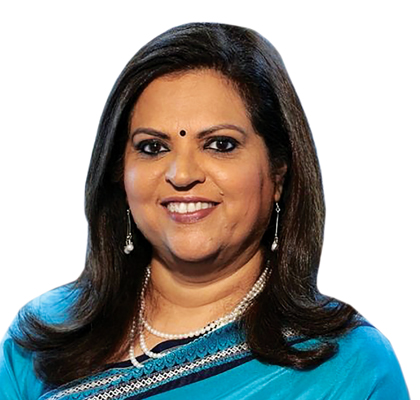
Navika Kumar
Group Editor, Times Network,
Editor-In-Chief
Times Now Navbharat
Navika Kumar is an Indian journalist, news anchor and media personality. She is a Group Editor Politics at Times Network and hosts the prime time show “The Newshour” on Times Now news channel. She is responsible for driving political reporting strategy for the Network’s brands like Timesnownews.com, Mirror Now and ET Now.
Born on 11 March 1978, Navika Kumar’s age is 42 years as of 2021. She was born and brought up in a well-to-do family from Sindri, Jharkhand, India.
She completed her initial schooling at Carmel School, Digwadih, Jharkhand. After that, she enrolled herself at the Gokhale Institute of Politics and Economics, Pune from where she completed her Master’s of Arts in Political and Economics.
She is termed as one of the best political and investigative journalists in India. She is working with the Times Now news channel and also become its brand ambassador.
Smriti Zubin Irani
Minister of Women & Child Development and
Minister of Minority Affairs
Government of India
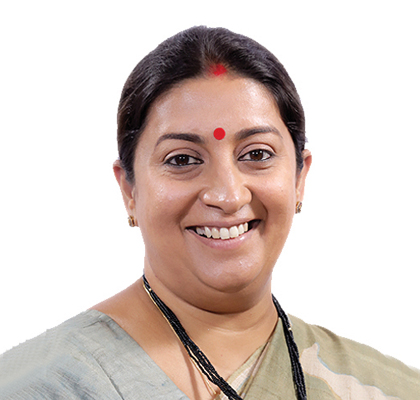
Smriti Zubin Irani
Minister of Women & Child Development and
Minister of Minority Affairs
Government of India
Born on 23rd March 1976, Mrs. Smriti Zubin Irani was elected to the Rajya Sabha, the Upper House of Indian Parliament representing the State of Gujarat in 2011. In August 2017 she was re-elected to Rajya Sabha from the state of Gujarat. In the 2019 General Elections, she was elected to the House of the People ‘Lok Sabha' from the constituency of Amethi in Uttar Pradesh by defeating the then National President of the Indian National Congress. Mrs. Irani is currently serving as the Union Minister for Women & Child Development and Minister for Minority Affairs.
She has previously served as the Union Minister for Education (formerly known as Human Resource Development) from May 2014 to July 2016, Minister for Information & Broadcasting from July 2017 to May 2018 and Minister for Textiles from July 2016 to July 2021. She is India’s youngest Union Cabinet Minister in the Government and the first woman to hold office as Minister for Education and as Minister of Textiles.
As Education Minister, Mrs. Irani introduced various educational reforms to upscale India’s capacities in the field of research, innovation and technology. She was instrumental in conceiving the New Education Policy of India and initiated several large scale projects including India’s first MOOC platform SWAYAM, the National Digital Library and a Global Network of Academicians called GIAN. She launched IM-PRINT to foster research, innovation and technology among students and academia. As Textiles Minister during Covid-19 Pandemic, she managed to galvanise both public and private sector companies to make India the world’s second largest producer of PPE in a span of three months amidst the global lockdown. As part of a national initiative to make India self-reliant, she gave impetus to advanced textiles technologies which included her effort to notify important HSN codes for the crucial Technical Textiles sector. In the last three years as Minister for Women & Child Development, Mrs. Irani has worked towards strengthening women & child protection services in India; including making child pornography a criminal offence through POCSO Amendment Act.
While serving as National President of her political party the Bharatiya Janta Party’s Women’s Wing, she successfully pursued Permanent Commission for Women in the Indian Army by facilitating legal aid to women officers. She is credited with launching of ‘Saksham’- the first ever Vision Document released by any political party in India underlining policies, programs and implementation tools for the upliftment of the Differently-abled in India. In the 126th Assembly of the Inter Parliamentary Union (IPU), Mrs. Irani was unanimously elected as a Member representing the Asia Pacific Region to the Task Force responsible for establishing the first ever Committee for Young Parliamentarians in the IPU. At the same Assembly, Mrs. Irani was also unanimously elected by Member Nations as Rapporteur for the Standing Committee on Sustainable Development, Finance and Trade. The World Economic Forum has named Mrs. Irani as the Young Global Leader from India for the year 2015. She has also served as the USAID Goodwill Ambassador to India for the WHO-ORS program before her political debut in India.
Besides being an active social & political activist, Smriti Irani has had a successful career as a Media Professional for over two decades starting from 1994. During this period, she worked across different fields of media including creating content for news & entertainment Television networks, films and theatre projects in 4 Indian languages. She has also authored a book and contributed as a column writer to 2 national dailies.
Ajay Khanna
Co-Founder & Forum Chairman, PAFI
Group Strategic Advisor
Jubilant Bhartia Group
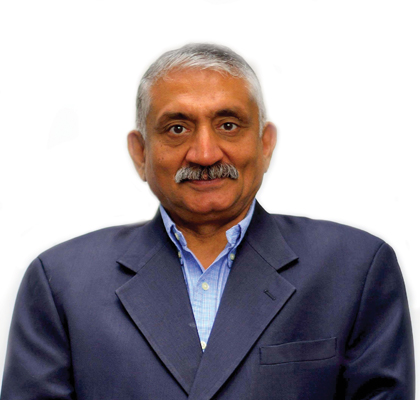
Ajay Khanna
Co-Founder & Forum Chairman, PAFI
Group Strategic Advisor
Jubilant Bhartia Group
The Jubilant Bhartia Group, has presence in diverse sectors like Pharmaceuticals, Life Science Ingredients and Drug Discovery Services, Performance Polymers, Food Service (QSR), Food, Auto, Consulting in Aerospace and Oilfield Services. Headquarter in India, the Group has presence in the United States, Canada, Europe, China, Singapore, Sri Lanka and Bangladesh. Jubilant Pharmova Limited, Jubilant Ingrevia Limited and Jubilant FoodWorks Limited are the flagship companies of the Group. Ajay joined the Group in 2009.
Ajay was founding Chief Executive Officer (2002-2006) of India Brand Equity Foundation (www.ibef.org). This was a unique Public Private Partnership initiative to Promote, Project & Position India’s growth story globally. IBEF, under Ajay’s leadership led “India Everywhere” campaign at the Annual Meeting of the World Economic Forum in Davos in 2006. A number of high profile global initiatives were taken during Ajay's four-year stint as the CEO of IBEF, a joint initiative of Ministry of Commerce, Government of India & Confederation of Indian Industry (CII).
Ajay was Deputy Director General (1999-2008) with the Confederation of Indian Industry (www.cii.in), an apex industry association. He held several leadership positions in his career span of over 27 years with the CII & led several key functions at international, national & regional levels. One of the key function was the relationship with the World Economic Forum, which Ajay handled for over 20 years. This included participation at the Annual Meeting of the World Economic Forum in Davos & arranging its annual India Economic Summit.
Ajay also worked with Accenture India as a Partner (2008-2009) responsible for managing relationships with the Governments & Corporates before joining Jubilant Bhartia Group. He has been member of several high level Government delegations, committees and task forces of the World Economic Forum. He was the Vice Chair of South Asia Regional Strategy Group (RSG) of World Economic Forum & is closely involved with the Schwab Foundation for Social Entrepreneur of the Year- India Award. He is a regular at WEF annual meeting in Davos where he has been participating for over 35 years.
In 2008, Ajay Co-Founded Public Affairs Forum of India (www.pafi.in). Since its inception, PAFI has been actively promoting transparent Public Affairs, Advocacy & Policy making. It provides a networking platform and opportunities to exchange views and share experience between corporates and various stakeholders, through panel discussions, seminars, close-door dialogues and the Annual National Forum which Ajay chairs. PAFI’s objective is to redefine the paradigm of engagement for businesses with external stakeholders, from Government to Media to Civil Society and Academia. PAFI is dedicated to raise and maintain standards in Public Affairs, Public Policy & Advocacy and to enable the industry to attain recognition and credibility.
Ajay is also an Adjunct Professor at The Takshashila Institution, Bengaluru.
Ajay is a graduate in Commerce from Shriram College of Commerce & a Degree in Law from University of Delhi & currently lives in Delhi NCR, India. Ajay is married to Renu, a Corporate Lawyer & a Social Worker. Their daughter, Dr Surbhi is a medical Psychiatrist & son, Dr Ankur is a dentist both practising in the US.
Session 7
Panel
Geopolitics - View from outside Raisina Hills
Thursday, 22 September 2022 (1635 – 1720 Hrs)
Within the complexity of geo-politics, India has emerged as a new global force to reckon with, beyond the so-called monolithic camps and alliances.
How do other countries look at India from their respective vantage points? What are the strengths and weaknesses of India, according to them?
Samiran Gupta
Senior Director, Public Policy and Philanthropy
Twitter in India & South Asia
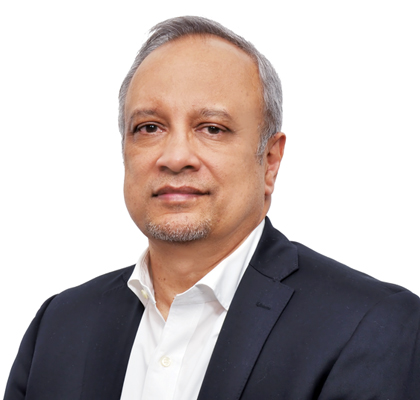
Samiran Gupta
Senior Director, Public Policy and Philanthropy
Twitter in India & South Asia
Samiran is the Senior Director for Public Policy and Philanthropy for Twitter in India and South Asia. Earlier, he was the head of India and South Asia for ICANN, and prior to that, a Senior Director with APCO Worldwide.
Samiran comes from a consulting background and has worked extensively in policy and business advisory in sectors including telecom, entertainment, fintech, e-commerce, social media, and energy and renewables.
Samiran has a Masters in Business Administration from St Joseph’s University in Philadelphia, United States of America, and a Bachelor of Commerce from University of Calcutta, India.
Rahul Sharma
Past President & Founding Member, PAFI and
Managing Director
APCO Worldwide, India

Rahul Sharma
Past President & Founding Member, PAFI and
Managing Director
APCO Worldwide, India
Rahul is presently the Managing Director of APCO Worldwide, India, and brings nearly 30 years of experience in media and public affairs to the table.
A former newspaper editor, Rahul has lived and worked in various countries. Starting his journalism career in India, he joined Reuters in early 1990s where he covered some of the biggest political and economic stories in the region before returning home as Editor, Delhi, Hindustan Times. In his last journalistic role, Rahul was Editor of the Dubai-based Khaleej Times, the oldest English-language daily in the Gulf region.
Formerly, President, Rediffusion Communications, Rahul was President, Public Affairs, South Asia, at Genesis Burson-Marsteller where he led policy and political campaigns. As a public affairs expert, he has worked with clients across sectors, advising them on policy and crisis issues. Rahul has written extensively on global and regional financial markets and economic issues. His subject interests include China, foreign policy and international relations, and he has contributed to various Indian and foreign publications.
An alumnus of the Indian Institute of Mass Communication, Rahul has a Masters in International Relations and Security from The Fletcher School of Law and Diplomacy at the Tufts University and a Masters in International Trade and Economy from Flinders University, Adelaide.
Ambassador Arun Kumar Singh
Former Ambassador of India to the United States
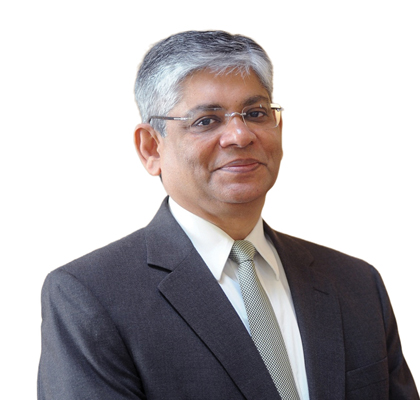
Ambassador Arun Kumar Singh
Former Ambassador of India to the United States
Ambassador Arun K Singh has extensive experience across the globe, including as India’s Ambassador to the United States, Israel, and France. Throughout his distinguished 37-year career in the Indian Foreign Service, Ambassador Singh has served during pivotal periods in key global capitals, and was instrumental in shaping India’s policies, notably the continued progress in the US-India relationship; India’s closer ties to Israel; and the formulation and implementation of India’s policies related to Afghanistan, Pakistan, and Iran, including in the period following 9/11.
In addition to his ambassadorial postings, Ambassador Singh’s previous assignments include: Embassy of India, Moscow from 1981 to 1982; the Indian Mission in Addis Ababa as Second Secretary from 1982 to 1985; Tokyo as First Secretary from 1985 to 1988; Deputy Secretary/Director dealing with East Asia and Pakistan Divisions from 1988 to 1991; Offices of the Foreign Secretary and the External Affairs Minister of India from 1991 to 1993; Counsellor at the Permanent Mission of India to the United Nations Office, New York from 1993 to 1997; Counsellor/Minister at the Indian Mission at Moscow from 1997 to 2000; and as Joint Secretary dealing first with the United Nations Policy, and then Pakistan, Afghanistan and Iran Divisions at the Ministry of External Affairs from 2000 to 2005.
Ambassador Singh has been a Halle Institute/ GSI Distinguished Fellow at Emory University (2017-2022), and is a Distinguished Non-Resident Senior Fellow in the Asia Program at The German Marshall Fund. In the spring of 2017, Ambassador Singh taught courses on US Foreign Policy in South Asia and Current Global Trends and Challenges at both American University and the School of Advanced International Studies at Johns Hopkins University. He was also a Distinguished Visiting Professor at Emory University and Center for Advanced Study of India at the University of Pennsylvania.
Currently he is a Visiting Professor at Ashoka University; and was a Member of India’s National Security Advisory Board (2021-22).
Ambassador Singh holds a Masters Degree in Economics from Delhi University, where he specialized in econometrics, development policy, macroeconomics, and Indian economic history.
An alumnus of the Indian Institute of Mass Communication, Rahul has a Masters in International Relations and Security from The Fletcher School of Law and Diplomacy at the Tufts University and a Masters in International Trade and Economy from Flinders University, Adelaide.
Dr Sanjaya Baru
Distinguished Fellow
United Service Institution of India

Dr Sanjaya Baru
Distinguished Fellow
United Service Institution of India
Sanjaya Baru is Distinguished Fellow, United Service Institution of India. He has been editor of India's major financial newspapers and was Media Advisor to Prime Minister Manmohan Singh (2004-09). He was Director for Geo-economics and Strategy, International Institute of Strategic Studies, London (2011-16); and Secretary-General, Federation of Indian Chambers of Commerce & Industry (2017-18). Baru was member of India’s National Security Advisory Board (1999-2001).
He was member of the Governing Board of the Centre for Policy Research and Visiting Professor, Lee Kuan Yew School of Public Policy, Singapore and Indian School of Public Policy, Delhi. He was professor of economics at University of Hyderabad and Indian Council for Research on International Economic Relations. He was also member India-ASEAN Eminent Persons Group, 2010. He is an Independent Director on the board of Wockhardt Ltd and Artemis Medicare Services Ltd.
His publications include The Strategic Consequences of India’s Economic Rise (2006); India and the World: Essays on Geo-economics and Foreign Policy (2016); The Accidental Prime Minister: The Making and Unmaking of Manmohan Singh (2014); 1991: How PV Narasimha Rao Made History (2016); India's Power Elite: Caste, Class and a Cultural Revolution, (Penguin Viking, 2021); Journey of a Nation: 75 Years of the Economy (2022).
Harish Krishnan
Past President & Co-Founder, PAFI and
Managing Director & Chief Policy Officer
Cisco Systems (India) Private Limited

Harish Krishnan
Past President & Co-Founder, PAFI and
Managing Director & Chief Policy Officer
Cisco Systems (India) Private Limited
As Managing Director & Chief Policy Officer of India & SAARC, Harish leads Cisco’s strategic engagement with National and State Governments of India on wide range of policy issues that concern Cisco in India - as an investor, globalization hub, seller and as a corporate citizen.
Harish actively participates in public policy forums in India and is the Vice President of MAIT, a member of the Confederation of Information Technology, Chairman, American Chamber of Commerce in India National committee on CSR) and FICCI’s National Committee on Telecom.
With over 25 years of experience in Public Affairs, Harish worked in IBM & Confederation of Indian Industry before joining Cisco in 2007.
Session 8
Plenary
G-20 and Beyond
Thursday, 22 September 2022 (1730 – 1815 Hrs)
India’s G-20 presidency comes at a crucial juncture. Post-pandemic economic growth is facing tailwinds from geopolitical tensions and backsliding rule-based global order.
Three mega-trends are - accelerating digital transformation, strengthening health architecture, and transitioning to sustainable energy.
What type of leadership can India provide to the comity of nations?
Rajiv Aggarwal
Managing Committee Member, PAFI and
Director and Head of Public Policy India
Meta
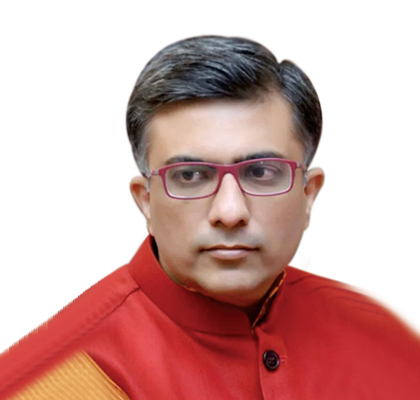
Rajiv Aggarwal
Managing Committee Member, PAFI and
Director and Head of Public Policy India
Meta
Rajiv Aggarwal is the Director and Head of Public Policy, India at Meta, where he leads important policy development initiatives in India on an agenda that covers user safety, data protection & privacy, inclusion and internet governance.
An experienced hand at public administration in a career spanning over 26 years as an Indian Administrative Service (IAS) officer, he has worked from grassroots to global level, including as a District Magistrate in 9 districts across Uttar Pradesh.
Besides a host of policy initiatives at State level, he steered India's first ever national policy on Intellectual Property Rights (IPRs) as Joint Secretary in the Department for Promotion of Industry and Internal Trade (M/o Commerce), and was instrumental in the digital transformation of India’s IP offices.
He has been closely associated with the India-US bilateral trade forum, besides being India’s lead negotiator on IPRs with other nations. In his previous assignment, he helmed policy issues in the challenging pandemic-affected times as Head of Public Policy at Uber for India and South Asia.
Rajan Anandan
Managing Director
Surge & Sequoia Capital India LLP
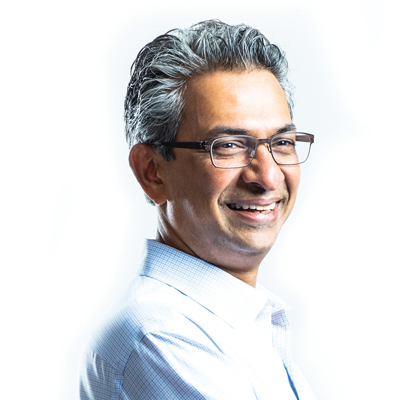
Rajan Anandan
Managing Director
Surge & Sequoia Capital India LLP
As part of the leadership team at Sequoia Capital, Rajan is focusing on developing Surge into the world's top scale-up program for startups by acting as an investment advisor and mentor to the programme's founders.
Surge aims to engineer rapid early progress for startups, by enabling disproportionate access to capital, talent, network and decades of company-building knowledge. Rajan's deep understanding of technology, operating expertise and a track record of growing tech businesses across the region will help Surge's founders scale and build the businesses of tomorrow.
Prior to Sequoia, as the VP of Google India and Southeast Asia, Rajan played a key role in expanding the regions internet ecosystem while accelerating Google's innovation and growth in the region. He is also a prolific angel investor who has backed a large number of successful startups at very early stages. Rajan also led Microsoft and Dell in India, worked for Michael Dell the founder of Dell and was earlier a Partner at McKinsey & Company in Chicago.
Amitabh Kant
Sherpa – G20
Government of India

Amitabh Kant
Sherpa – G20
Government of India
Amitabh Kant is presently CEO of National Institution for Transforming India (NITI Aayog). He is a member of the Indian Administrative Service, IAS (Kerala Cadre: 1980 batch). He is the author of Branding India-An Incredible Story, Incredible India
2.0 and has edited “The Path Ahead- Transformative Ideas for India”. Kant has been a key driver of the “Make in India”, Startup India, “Incredible India” and God’s Own Country” initiatives that positioned India and Kerala State as leading manufacturing and tourism destinations.
These campaigns have won several international awards and embraced a host of activities – infrastructure development, product enhancement, private-public partnership and positioning and branding based on extensive market research.
Amitabh Kant has been the Chairman & CEO of the Delhi Mumbai Industrial Corridor Development Corporation (DMICDC). The Delhi Mumbai Industrial Corridor (DMIC) is being developed by the Government of India as a global manufacturing and investment destination supported by world class infrastructure and enabling policy framework. The DMIC project is aimed at the development of futuristic, smart industrial cities in India which will converge and integrate next generation technologies across sectors. The DMIC cities will address not merely the urbanization requirements of India, but with manufacturing as the main economic base, will also contribute significantly to the economic growth of India.
In his capacity as Secretary (Department of Industrial Policy and Promotion) Govt. of India, he vigorously drove the Ease of Doing Business initiative and ranking of States on outcome parameters. These initiatives have led to India making a quantum jump in the World Bank’s Ease of Doing Index and enabled Indian States to compete in the spirit of competitive federalism. He is the Chairman of the Committee to implement Digital Payment in India.
Mr. Kant has been the recipient of Economic Times Policy Change Agent of the Year Award, the Bloomberg TV Personality of the year Award, the NDTV Administrator of the year Award and the Distinguished Fellowship of the Institute of Directors. He is the recipient of One Globe Award-2016 for leadership in Transforming Governance for the 21st Century. He is also the recipient of Sir Edmund Hillary Fellowship awarded by the Prime Minister of New Zealand. He is a Member of the Steering Board of “Shaping the Future of Production Systems” of World Economic Forum. He is also the recipient of Golden Peacock Award for Leadership in Economic Transformation-2017.
Amitabh Kant has worked as CMD – ITDC, Joint Secretary – Ministry of Tourism, Government of India, Secretary – Tourism, Government of Kerala, Managing Director, Kerala State Industrial Development Corporation, District Collector, Kozikhode and Managing Director, Matsyafed. During his tenure in Kerala he structured the Calicut Airport as a private sector project based on User’s Free and developed the BSES Power Project and Mattanchery Bridge under Private Public Partnership. He was also responsible for introducing new technology (fiberglass crafts and outboard motor) in the fisheries sector and launching beach level auctions which substantially enhanced returns to traditional fishermen.
Amitabh Kant did his schooling from Modern School, Delhi, graduation in Economics (Hons) from St. Stephens, Delhi University and M.A from Jawaharlal Nehru University. He is a Chevening Scholar. He has also undertaken a mid-term course with John F. Kennedy School of Government, Harvard University and Indian Institute of Management (IIM), Ahmadabad.
Neelima Dwivedi
Managing Committee Member, PAFI and
Executive Director - Public Policy, Corporate Communications
& Market Access
MSD Pharmaceuticals Pvt. Ltd.
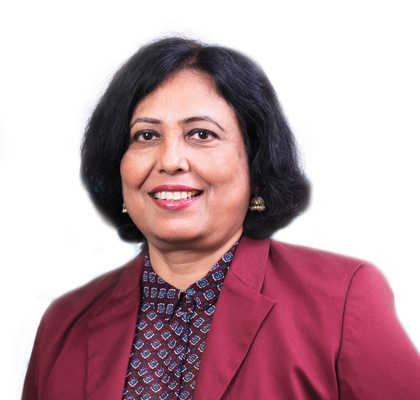
Neelima Dwivedi
Managing Committee Member, PAFI and
Executive Director - Public Policy, Corporate Communications
& Market Access
MSD Pharmaceuticals Pvt. Ltd.
Neelima is a senior professional with over 25 years of experience in Corporate affairs, Public Policy, CSR & Philanthropy. She has a strong blend of global and local expertise having played an instrumental role in developing government affairs strategies, policy advocacy, reputation management and public private partnerships at PepsiCo, MSD, DuPont & Monsanto where she has served as part of the country leadership team. Her last stint was at Microsoft, where she served as Group Head & Director, Government Affairs & Public Policy and was responsible for driving Policy & Regulatory Affairs for Microsoft India, across all businesses.
Having worked in the challenging environment across these diverse industries, she understands that proactive stakeholder’s engagement, cultivating relationships & Issue Management are the important prerequisite of commercial success.
Neelima has driven public private partnership initiatives across several states in India. She has been part of several Govt’s Steering committees such as in Agriculture- 12th Five years plan on Agriculture Extension, & Public Private Partnerships, Doubling Farmer’s income of MOA. She also contributed to Food Processing Committee chaired by Secretary Ministry of Food Processing and led several working groups & Advocacy committees of Industry Associations. She also participated of the national COVID-19 response core committee of Telemedicine.
Neelima has had an earlier stint with MSD India between 2013-2016 as Senior Director, Corporate Affairs. During her earlier stint she also led MSD for Mothers in India which was a multimillion-dollar engagement & partnerships with public health organizations. She also led initiatives across ASEAN countries as a special assignment to support Women Health Business at MSD.
Neelima completed her master’s from Ranchi University.
Session 9
Plenary
Global Risks – Advantage India
Thursday, 22 September 2022 (1830 – 1915 Hrs)
How can India refashion a more inclusive, equitable and sustainable rules-based global order amidst a clutch of global risks like rising inequality, climate change, fault lines in existing global value chains, geopolitical tensions, pandemic, and cyber threats?
Arijit Sen
Vice President – Government Affairs
Vivo Mobile India Pvt Ltd
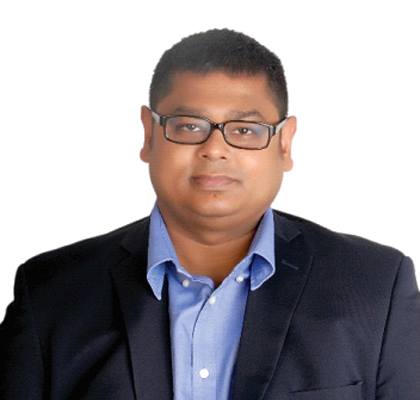
Arijit Sen
Vice President – Government Affairs
Vivo Mobile India Pvt Ltd
Arijit Sen is currently heading Vivo Government Affairs. He has more than two decades of public policy experience across South Asia.
Before Vivo, he headed the public policy space for HP, Dell & Flex. He is a special invite on the PM’s council for climate change and was a part of the Dhall Committee on Public Procurement.
Arijit has contributed towards the government’s PLI & SEZ policy and helped formulate the government’s MSIPS & SPECS Policy.
Arijit currently lives in Delhi with his wife and daughter.
Pranjal Sharma
Economic Analyst and Author
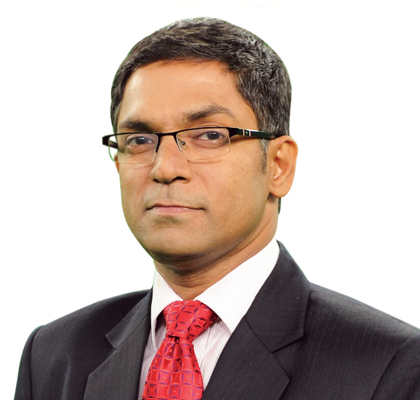
Pranjal Sharma
Economic Analyst and Author
PRANJAL SHARMA is an economic analyst, advisor and author who focuses on technology, globalisation and media. He serves on boards of enterprises and non-profit entities which are leveraging emerging technologies for sustainable, equitable growth.
Pranjal leads public discourse at global and national platforms including World Economic Forum, St Gallen Symposium and Horasis Global Meeting. He served as a member of the Global Agenda Council at the WEF for eight years. He is a member of its expert network and a regular speaker at Davos. He is also a member of The Outstanding Speakers Bureau.
Pranjal also guides projects on economic forecasting, business intelligence & public diplomacy to interpret policy impact on industry and society. He has written and edited several reports and papers on economic development. Pranjal is a columnist with Business Standard newspaper and BusinessWorld magazine among other publications.
His new book is India Automated: How the Fourth Industrial Revolution Transforming India. His previous book Kranti Nation: India and The Fourth Industrial Revolution, published in 2017 was the first to chronicle the impact of emerging technologies in India. Pranjal was also the co-author of The Z Factor.
He has served as Advisor Strategy to India's public service broadcaster Prasar Bharati, (Ministry of Information & Broadcasting, Government of India) where he helped bring in industry best practices and enabled creation of digital media teams.
Previously, he spent more than two decades in print, internet and TV media, mostly in leadership roles with focus on India’s economic engagement with the world. As Founding Executive Editor at Bloomberg UTV, he helped launch and run the channel. At TV Today Network, his team pioneered business news content for non-English audiences. Pranjal received the News Television Award for best business show in 2007. He lives in New Delhi, India.
Suresh Prabhu
Founding Chancellor, Rishihood University
Guest Professor, London School of Economics
Former Union Minister & Member of Parliament
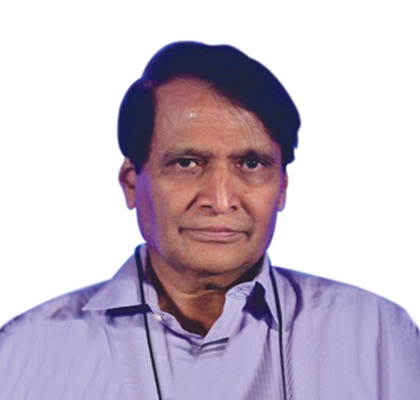
Suresh Prabhu
Founding Chancellor, Rishihood University
Guest Professor, London School of Economics
Former Union Minister & Member of Parliament
Mr Suresh Prabhakar Prabhu is a renowned Parliamentarian in the country. He is currently the Founding Chancellor of Rishihood University and the Guest Professor of London School of Economics.
He has been an accomplished Chartered Accountant, Banker, Educationist, Social Worker and Politician.
Mr. Suresh Prabhu 10 important cabinet portfolios at the federal level in Govt of India including Industry, Power, Environment & Forest, Railways, Civil Aviation, Commerce & Industry, Fertilizers & Chemicals.
Under Modi government, he was the Railwasy, Civil Aviation and commerce and industry miniter. He has also served as the Prime Minister’s Sherpa to the G7 & G20 and was involved in shaping the official agenda of the Government of India on key issues for G7 & G20 Summits.
He laid out a complete blueprint for modernising and revamping the railways and also initiated an unique real-time customer grievance redressal mechanism, probably one of its kind in the world.
The first ever Global Aviation Summit was held under his leadership. He was the main contributor to the Nation’s UDAN initiative.
He held several portfolios under Prime Minister Vajpaye. One of the most notable achievements of Mr Pabhu during this period was the reforms he brought in the Indian Power Sector. He is credited with championing and enacting the Electricity Act of 2003 and for creating securitization of dues from the provincial states of India.
He had also served as the Chairman of Task Force for Interlinking of rivers which envisioned physically linking vast river network of India to provide needy year-long irrigation facility to India’s dry regions. He was also an elected member of the World Bank Parliamentary Network and chaired the South Asia Water regional Group of the World Bank.
Medha Girotra
Managing Committee Member, PAFI and
Vice President, Public Policy, South Asia
Mastercard India Services Pvt Ltd

Medha Girotra
Managing Committee Member, PAFI and
Vice President, Public Policy, South Asia
Mastercard India Services Pvt Ltd
An advocacy specialist, Medha heads Public Policy and CSR for South Asia at Mastercard. With a strong background in reputation management, Medha is spearheading Mastercard’s various collaborations with the government and non-government agencies towards accelerating digital adoption, improving credit access to the underbanked and leveraging new emerging technologies for inclusive growth.
An industry veteran with over 20 years in work experience, Medha believes that awareness and knowledge are as critical as access to new solutions and all three are at the core of rapid adoption of new technologies as well as in enhancing credit facilities to people at large across all sections of society.
A firm supporter of evidence-based advocacy, Medha is a key driver across several projects at Mastercard in partnership with the government, think tanks and academia to evaluate and assess the lacunae in digitisation and credit access of MSME’s, farmers, and artisans with a special focus on women entrepreneurs, a topic close to her heart.
Her other focus areas of work include spreading awareness and encouraging adoption of safe and secure platforms given the rapid digitisation especially in financial services industry. A strong advocate of ‘emerging technologies for inclusive growth’ she feels any technological deployment in financial services must be open, equitable and must lead to ease of living.
Session 10
Plenary
Healthy, Wealthy and Sustainable India
Friday, 23 September 2022 (1000 – 1045 Hrs)
Pandemic has amply demonstrated that without effective and efficient healthcare, a country and its economy can be crippled. On the other hand, r ole of chemicals, fertilizers and pharmaceuticals also become crucial in fueling the economy, improving agricultural productivity, and supporting well-being.
It also needs careful planning for judicious and optimal use of chemicals and fertilizers. Transparent, responsive policies and public-private partnerships wonders can indeed happen. At the population scale of India, it is a non-trivial challenge
What is the long-term strategy for strengthening healthcare infrastructure while also ensuring access to universal, ubiquitous, and affordable care, anywhere, anytime? How would India migrate to sustainable low-carbon scenario without forsaking its growth prospects?
Ishteyaque Amjad
Past President & Managing Committee Member, PAFI and
Managing Director, Policy & Government Affairs
Abbott Healthcare Pvt. Ltd

Ishteyaque Amjad
Past President & Managing Committee Member, PAFI and
Managing Director, Policy & Government Affairs
Abbott Healthcare Pvt. Ltd
Ishteyaque Amjad, Immediate Past President PAFI, is the Group Global Head of Corporate Affairs at Godrej Group.
He spearheads the practice, and his charter includes government relations, policy advocacy and external affairs. With a career spanning over two decades, Ishteyaque has had the opportunity to work across a diverse set of industries through stints both in India and overseas in organizations such as Coca-Cola, Cargill, HCL and Essar Group. He started his career at the Indian Army.
As one of India's leading practitioners of public/corporate affairs, Ishteyaque is passionate about social issues and is a strong advocate for deploying business solutions to address societal challenges. He is often described as someone with a capitalist's mind and an activist's heart!
Ishteyaque serves on the Advisory Board of AIESEC India, he is a member of CII’s National Committee on Real Estate and FICCI’s National FMCG Committee. He has served on the Board of Management of TERI School of Advanced Studies and has been a jury at the Cannes Lions the Festival of Creativity. He completed his postgraduation from SIMS Pune, graduated with a bachelor’s degree in Economics
from AMU, Aligarh and is also an alumnus of the Indian Military Academy, Dehradun.
With a flair for words, Ishteyaque prefers poetry and anecdotes as the perfect medium for storytelling.
Navika Kumar
Group Editor, Times Network,
Editor-In-Chief
Times Now Navbharat

Navika Kumar
Group Editor, Times Network,
Editor-In-Chief
Times Now Navbharat
Navika Kumar is an Indian journalist, news anchor and media personality. She is a Group Editor Politics at Times Network and hosts the prime time show “The Newshour” on Times Now news channel. She is responsible for driving political reporting strategy for the Network’s brands like Timesnownews.com, Mirror Now and ET Now.
Born on 11 March 1978, Navika Kumar’s age is 42 years as of 2021. She was born and brought up in a well-to-do family from Sindri, Jharkhand, India.
She completed her initial schooling at Carmel School, Digwadih, Jharkhand. After that, she enrolled herself at the Gokhale Institute of Politics and Economics, Pune from where she completed her Master’s of Arts in Political and Economics.
She is termed as one of the best political and investigative journalists in India. She is working with the Times Now news channel and also become its brand ambassador.
Dr Mansukh Mandaviya
Union Minister for Health & Family Welfare and
Chemicals & Fertilizers
Government of India
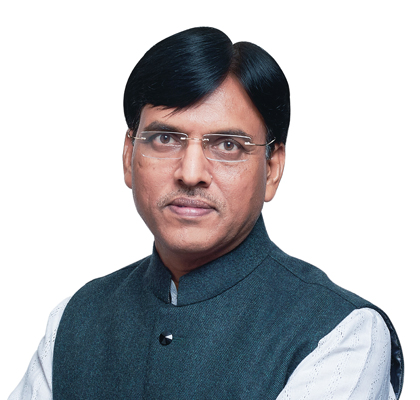
Dr Mansukh Mandaviya
Union Minister for Health & Family Welfare and
Chemicals & Fertilizers
Government of India
Mansukh Mandaviya is the Minister of Health and Family Welfare; and Minister of Chemicals and Fertilizers in Government of India. Mandaviya was born in a small village named Hanol in Palitana district of Gujarat state in a middle-class farmer’s family. He holds a Postgraduate degree in Political Science from Bhavnagar University.
Mandaviya was very active in politics and serving people since his youth. He became a member of ABVP and soon he grabbed his position as a state executive committee member of ABVP, Gujarat unit. Seeing his intellect, skills and the zeal to work hard he was appointed as a leader of YuvaMorcha and then the president of Palitana BJP unit. He also holds a record of being the youngest MLA in Gujarat.
Working hard to serve the people and uplifting them was his only goal and thus he organized two Padyatras of 123 Km and 127 Km for the cause of Girl Education, BetiBachao, BetiPadhao and VayasanHatao. At a young age of 38, he was elected as a member of Rajya Sabha. He was also a part of various standing committees in various fields.
With his hard work and intelligence, he was appointed as Secretary for state unit BJP in 2013 and General Secretary in 2014. Later in 2014, he was appointed as Gujarat State Incharge of BJP’s High-tech & Mega Membership Drive Campaign which led to 1 crore people joining BJP in Gujarat.
Mandaviya is well known for his intellectual analysis and thought leadership, which he also exhibited in his speech on “2030 Agenda for Sustainable Development” at the United Nations. He has travelled to lot many countries to explore their policies & management to help India grow at the fastest pace.
On 5th July 2016, he sworn in as a Minister of State for Road Transport & Highways, Shipping and Chemical & Fertilizers in Government of India. Serving as a minister, he has implemented a lot of plans and thoughts to get the work done quickly and efficiently.
He was re-selected for the Second Term for Member of Parliament, Rajya Sabha during March, 2018.
With his decisive and bold leadership, he has helped increasing the per day road construction speed, decreasing the cost of Urea and other fertilizers, establishing more than 4000 Jan Aushadhi stores to provide more than 800 medicines at affordable rates and reducing the cost of heart stent and knee implants. Above this, he has not left any stone unturned to help the common man, farmers and businesses.
Mandaviya has been a part of various delegations, twice with the President and once with vice president to sign MOUs and develop bilateral relations with other Nations. In the Asian Continent he has visited China, Israel, Oman, Nepal, Dubai and Uzbekistan. He also visited European countries like England & Germany, South American countries like Brazil & Argentina. He has visited lot many countries of Africa like Kenya, Uganda, Tanzania, Rwanda, Algeria, Hungary, Equatorial Guinea, Swaziland and Zambia. In an Oceania Region Shri Mandaviya visited New Zealand, Tonga, Fiji and Australia.
He has played a vital role in the growth and development of New India with his hard work, organizational skills and intellect.
Again in 2019, he sworn in as a Minister of State (Independent Charge) for Ministry of Shipping and Minister of State for Chemical & Fertilizers in Government of India.
With effect from 07.07.2021, he was elevated to the Minister for Chemicals and Petrochemicals and the Minister for Health and Family Welfare in the Government of India
Vinita Sethi
Secretary, PAFI and
SVP & Chief Public Affairs
Apollo Hospitals Group
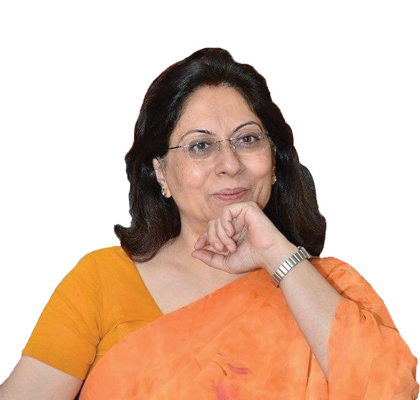
Vinita Sethi
Secretary, PAFI and
SVP & Chief Public Affairs
Apollo Hospitals Group
Vinita is the SVP & Chief Public Affairs at the Apollo Hospitals Group, India’s largest and Asia’s foremost integrated healthcare conglomerate spanning across hospitals, clinics, pharmacies, R&D, and tele-remote health care. She works actively with the industry and the Government to accelerate the growth of an inclusive healthcare ecosystem and is regularly engaged with policy advocacy forums with Ministries and think tanks. Focusing on opportunities to collaborate across industry, reinvent & transform healthcare, she has been engaged with other global stakeholders at the World Economic Forum, and is also additional director on the board of Foundation for Innovative New Diagnostics, FIND-India.
In a career spanning over two decades, she has worked in senior positions in CII & FICCI, and as VP-Corporate Affairs at Bharti Airtel. Vinita completed her master’s in Economics from the Delhi School of Economics (1985-87), followed by master’s in International Relations from the International University of Japan (1987-89). Vinita has published several papers and articles and has been acknowledged by the Niti Aayog for her contribution to the "Strategy for New India @75".
Passionate about developmental issues, she helped set up the Ek Soch Sandbox for social entrepreneurship (2011-2015). Currently she is Member, Advisory Board-
Women Intech Delhi Chapter; one of co-conveners of the Women’s Mentorsh ip forum in FICCI-FLO led “Empowering the Greater 50% initiative” and is also working on digital inclusion programmes for women in education & financial literacy across the country.
Session 11
Panel
Young Leaders – Raring to Go
Friday, 23 September 2022 (1050 – 1135 Hrs)
India has a rare opportunity of realizing the demographic dividend, thanks to a youth bulge. However, this needs focus on creating new institutional mechanisms for learning and earning as well as for greater social inclusion and economic mobility.How do young leaders across a wide spectrum of fields envision India @ 100? Why and how should the youth get engaged and involved in the policy process?
Ram Rakkappan
Head of Government Engagement,
India & South Asia Visa
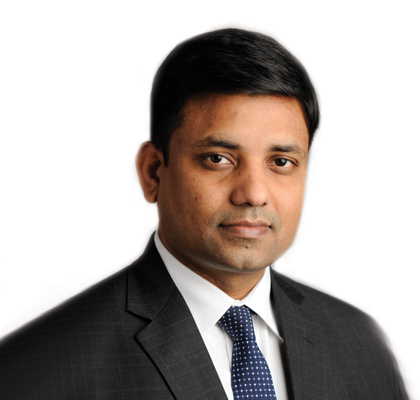
Ram Rakkappan
Head of Government Engagement,
India & South Asia Visa
Ram is Senior Director & Head of Government Relations for India and South Asia at Visa Inc. In his current capacity, Ram manages stakeholder relationship with governments, legislators, regulators, multilateral agencies and associations in the region. Prior to joining Visa, he served as Vice President & Head of Government & Public Affairs for Moody’s Corporation in India. Previously he served as Senior Advisor – Peace & Security at Friedrich Ebert Stiftung (FES); Vice President & Head of Regulatory Compliance at GLG Inc. He received his Ph.D. in International Relations from Jawaharlal Nehru University, and is a recipient of Hansen Fellowship for International Leadership, The Dalai Lama Foundation Peace fellowship and NATO millennium fellowship. He has published a book on Afghanistan, and several research articles on foreign policy and security. Ram is very passionate about perspectives on Earth, Growth & Development.
Javed Sayed
Associate Executive Editor
The Economic Times
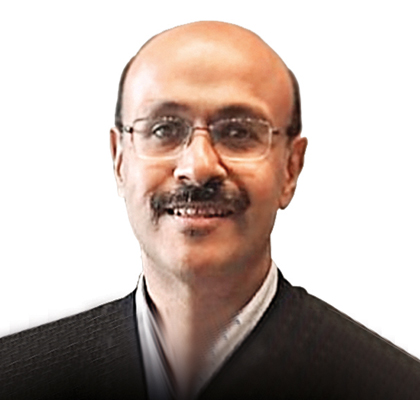
Javed Sayed
Associate Executive Editor
The Economic Times
Javed Sayed is the associate executive editor of The Economic Times, India’s largest business newspaper. He heads the national news operations of ET and is also responsible for print digital integration. He has been the Resident Editor (North) of the newspaper and the National Corporate Editor of The Economic Times and ET NOW, the sister channel of the newspaper. He was part of the founding team of ET NOW. A journalist with around 25 years of experience, Javed tracks corporate and macro trends and is keenly interested in the intersection of policy and business.
Agam Khare
CEO & Founder
Absolute Foods

Agam Khare
CEO & Founder
Absolute Foods
Agam is the Founder and CEO at Absolute®, one of the worldʼs leading plant bioscience companies leveraging the best of nature, science and exponential technologies to build a better future- For People, For Planet.
Prior, he worked closely with the 11th President of India & World-Renowned Scientist- Late Dr. APJ Abdul Kalam towards his Vision 2020 project – leveraging emerging technologies to build India into a developed nation.
Previously, he ran a leading Indian company in Industrial Robotics, AI, Factory Automation & Intelligent grid systems space. He has worked across Biotech, Agriculture, Auto, Oil & Gas, Pharma & Food & Beverage.
Agam is passionate about innovations emerging in biotech, brain machine interface, space tech & global commerce. He firmly believes that next generation of frontier tech companies will emerge by intersecting the best in Artificial Intelligence & Nature Intelligence. He also advises several start-ups and universities across Asia, Europe & US.
Tania Sachdev
Chess Grandmaster

Tania Sachdev
Chess Grandmaster
Tania Sachdev has been playing Chess now for almost 28 years. As International Master and Women’s Grand Master, she has played for India in many International Tournaments and brought laurels to the Country with over 30 Medals till now. She has played for India in Chess Olympiads. Team Tournaments in World Cup, Commonwealth Championships, Asian Championships, besides achieving success in National events regularly. She has represented India in the Chess Olympiads 6 times till now. She was awarded the prestigious Arjuna Award from the Government of India in 2009.
Besides playing chess at National and International levels, Tania has been actively promoting Chess in School, colleges and through other private endeavours, encouraging young children to play Chess actively. This effort at the grass root level has benefited many members of India’s youth, particularly the underprivileged children and those who aspire to learn chess but are waiting for guidance and do not have the means to get the benefits from the experience of other athletes.
The Indian Women team recently won the Bronze Medal at the Chess Olympiad in Mahabalipuram in Chennai. This was the first medal for chess in Olympiad. Tania Sachdev also won an individual Bronze Medal for her performance. A total of 187 countries participated. She was awarded a special award by International Chess Federation as a Chess Influencer during the Chez Olympiad.
Chess is a Game that helps in overall personality growth of an individual in many decision-making ability quick grasp of options and choices, memory skills and as a true athlete, Tania has successfully motivated and guided many young children to grow up in life with holistic personalities in India.
Harsimarbir Singh
Co-Founder
Pristyn Care

Harsimarbir Singh
Co-Founder
Pristyn Care
Having studied at Duke University, USA with a stint at IIM Ahmedabad, Harsimarbir (Harsh), has worked with startups in India and USA. He was heading to be an Investment Banker in Silicon Valley, California, USA, before returning back to India in 2010.
As a serial entrepreneur with a keen interest in disruptive ideas, he founded three startups. The first one was in the Data analytics space for electricity theft detection where he worked with the Govt. The next one was a mobile first, location based, hyper local couponing startup back in 2013 when there were hardly any mobile Apps in the market. Both of these failed to scale beyond a point. His third failed startup was in the food delivery space.
He went on to join Urban Company (formerly UrbanClap) as Head of Business to build their Beauty Services business offering Salon and Spa services at home from scratch and scaled it to capture 80% of the market share, making it the largest business by top-line revenue & margins inside the company. He also spent some time building digital lending products for Mobikwik as the Director of Strategy using eNach and Aadhaar based UPI payment frameworks launched by NPCI.
Along with his childhood friends - Dr Vaibhav Kapoor and Dr Garima Sawhney, Harsimarbir (Harsh) started Pristyn Care in August 2018 with an aim to build a patient-first healthcare organization offering high-quality advanced surgeries across the nation.
Under Pristyn Care’s patient-first approach for all its Surgery patients, the entire process that patients have to undergo during their surgery is made hassle-free, paperless and seamless using deep tech interventions. He leads the entire business, technology and growth for Pristyn Care.
Ajai Thandi
Co-Founder
Sleepy Owl Coffee
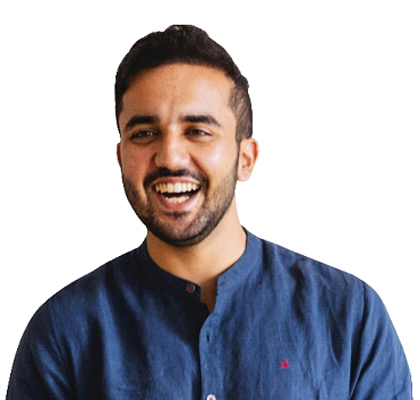
Ajai Thandi
Co-Founder
Sleepy Owl Coffee
Imagine New York, the city that never sleeps and a demanding job that makes sure you don't even think about it. That was Ajai Thandi's sweet, sweet introduction to the bitter-sweet taste of coffee. While Ajai worked as an Investment Banker at the esteemed firm, JP Morgan in New York City, he had downed enough cups of coffee to know good from mud. With his love for numbers and given his experience with caffeine, his childhood friend, Ashwajeet Singh's idea about starting a Cold Brew Coffee company in India resonated with him.
A big picture guy, Ajai focuses on strategy to see that there is enough fire power for the execution of the vision. He keeps the initial passion and innovation in the company alive by keeping a tight grip on the margins and maintaining healthy cash flows.
He also takes care of Sleepy Owl’s retail sales and manages a team of sales representatives, who are personally trained by the founders to showcase and promote the product at Modern Trade stores.
Education: BA Economics, University of Southern California
Responsibility: Retail Srategy, Offline Sales and Financial Planning
Deepak Maheshwari
CEO
PAFI
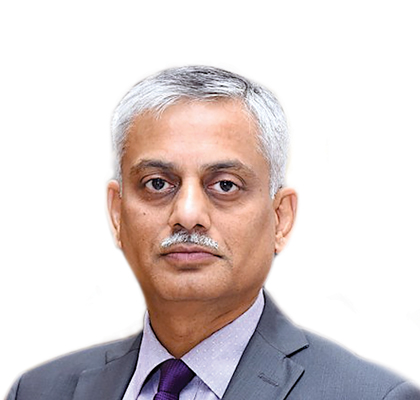
Deepak Maheshwari
CEO
PAFI
Deepak joined as the Chief Executive Officer of PAFI after leading policy function for over two decades in Symantec, MasterCard, Microsoft and Sify with responsibilities spanning India, ASEAN and China.
Having a keen interest in the interplay of public affairs, innovation and socio- economic development, Deepak is a thought leader and an oft-invited speaker, his views have been widely published and cited.
A strong believer in the transformative power of public private partnerships, he co- founded National Internet Exchange of India, NIXI and the ITU-APT Foundation of India. He has served as Global Chair of the IEEE Internet Initiative, Secretary of the ISP Association of India and as a board member of the IIM Ahmedabad-Idea Telecom Centre of Excellence.
He is also a Senior Fellow at Centre For The Digital Future, CDF and a Senior Visiting Fellow at Indian Council for Research on International Economic Relations, ICRIER.
A graduate in engineering from Indian Institute of Technology, he also has a degree in law.
Session 13
Panel
Policy Recipe book for India @ 100
Friday, 23 September 2022 (1225 – 1315 Hrs)
Policy priorities of different stakeholders vary and occasionally, even conflict. However, inclusive policy and iterative processes help evolve consensus, and offer opportunities for course-correction.
What do the administrative leaders envision about India @ 100? How should policies be developed and implemented with due consideration for scale, speed and sustainability?
Ajay Khanna
Co-Founder & Forum Chairman, PAFI
Group Strategic Advisor
Jubilant Bhartia Group

Ajay Khanna
Co-Founder & Forum Chairman, PAFI
Group Strategic Advisor
Jubilant Bhartia Group
The Jubilant Bhartia Group, has presence in diverse sectors like Pharmaceuticals, Life Science Ingredients and Drug Discovery Services, Performance Polymers, Food Service (QSR), Food, Auto, Consulting in Aerospace and Oilfield Services. Headquarter in India, the Group has presence in the United States, Canada, Europe, China, Singapore, Sri Lanka and Bangladesh. Jubilant Pharmova Limited, Jubilant Ingrevia Limited and Jubilant FoodWorks Limited are the flagship companies of the Group. Ajay joined the Group in 2009.
Ajay was founding Chief Executive Officer (2002-2006) of India Brand Equity Foundation (www.ibef.org). This was a unique Public Private Partnership initiative to Promote, Project & Position India’s growth story globally. IBEF, under Ajay’s leadership led “India Everywhere” campaign at the Annual Meeting of the World Economic Forum in Davos in 2006.
A number of high profile global initiatives were taken during Ajay's four-year stint as the CEO of IBEF, a joint initiative of Ministry of Commerce, Government of India & Confederation of Indian Industry (CII).
Ajay was Deputy Director General (1999-2008) with the Confederation of Indian Industry (www.cii.in), an apex industry association. He held several leadership positions in his career span of over 27 years with the CII & led several key functions at international, national & regional levels. One of the key function was the relationship with the World Economic Forum, which Ajay handled for over 20 years. This included participation at the Annual Meeting of the World Economic Forum in Davos & arranging its annual India Economic Summit.
Ajay also worked with Accenture India as a Partner (2008-2009) responsible for managing relationships with the Governments & Corporates before joining Jubilant Bhartia Group. He has been member of several high level Government delegations, committees and task forces of the World Economic Forum. He was the Vice Chair of South Asia Regional Strategy Group (RSG) of World Economic Forum & is closely involved with the Schwab Foundation for Social Entrepreneur of the Year- India Award. He is a regular at WEF annual meeting in Davos where he has been participating for over 35 years.
In 2008, Ajay Co-Founded Public Affairs Forum of India (www.pafi.in). Since its inception, PAFI has been actively promoting transparent Public Affairs, Advocacy & Policy making. It provides a networking platform and opportunities to exchange views and share experience between corporates and various stakeholders, through panel discussions, seminars, close-door dialogues and the Annual National Forum which Ajay chairs. PAFI’s objective is to redefine the paradigm of engagement for businesses with external stakeholders, from Government to Media to Civil Society and Academia. PAFI is dedicated to raise and maintain standards in Public Affairs, Public Policy & Advocacy and to enable the industry to attain recognition and credibility.
Ajay is also an Adjunct Professor at The Takshashila Institution, Bengaluru.
Ajay is a graduate in Commerce from Shriram College of Commerce & a Degree in Law from University of Delhi & currently lives in Delhi NCR, India. Ajay is married to Renu, a Corporate Lawyer & a Social Worker. Their daughter, Dr Surbhi is a medical Psychiatrist & son, Dr Ankur is a dentist both practising in the US.
Virat Bhatia
President, PAFI and Managing Director
Apple India

Virat Bhatia
President, PAFI and Managing Director
Apple India
Virat Bhatia serves as the Managing Director at Apple India. He spearheads strategy and policy in India, supporting all of Apple’s investments and business operations. These include Manufacturing, Retail, App Store, Maps, Content, Services and Digital Payments.
Always one to foster collaboration, teamwork, innovation and support young talent, Virat’s career in the ICT sector spans over 25 years across multiple functions. These include general management, strategy, operations, communications and policy.
Uniquely, he has led both the Services and Manufacturing side of businesses in Fortune 500 companies. Before Apple, he served in multiple, senior positions at AT&T, including as the Chairman of AT&T in India and later, as AT&T’s Regional President for South Asia. Prior to that, he was part of the team that was responsible for Coca Cola’s return to India in the mid-90s.
Virat currently serves on the India Executive Leadership Board of the US- India Strategic Partnership Forum (USISPF). He chairs the FICCI National Committee on ICT and Mobile Manufacturing and serves on its National
Executive Committee. In 2014, the UN Secretary General appointed him to the Multistakeholder Advisory Group of the UN Internet Governance Forum (UNIGF). In the past, he has held the position of Vice President of the Commission on ICT of the Paris-based International Chamber of Commerce (ICC), and that of the Vice Chairman of the American Chamber of Commerce in India.
He is an alumnus of the Delhi University and John F. Kennedy School of Government, Harvard University. Virat has also completed Advance Management Programmes at Kellogg’s School of Management, and Wharton Business School.
Rohit Saran
Editor-in-Chief
Times of India – Digital
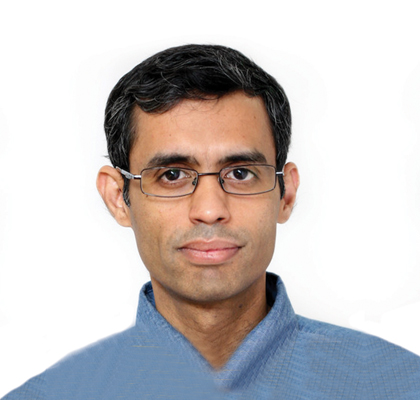
Rohit Saran
Editor-in-Chief
Times of India – Digital
Rohit Saran is Editor-in-Chief of The Times of India-Digital. He has been Managing Editor of The Times of India and Executive Editor of The Economic Times. He has held senior editorial positions at the India Today Group where he was executive editor of India Today and Editor of Business Today. He also edited The Khaleej Times in Dubai.
Rohit has conceptualised and launched several publications, including ET Magazine, ET Wealth and Money Today. He was also the editor of the South Asian edition of Harvard Business Review and Scientific American.
He holds a Master’s degree in Economics and has a deep interest in data and digital journalism.
Dr Anil Jain
Secretary
Ministry of Coal
Government of India
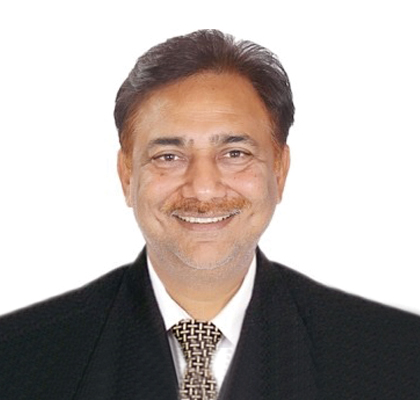
Dr Anil Jain
Secretary
Ministry of Coal
Government of India
Mr. Anil Kumar Jain is a member of the Indian Administrative Service of the Government of India, and is presently posted as Secretary in the Ministry of Coal handling issues related to mining of coal and its transportation and distribution to power producers and other related industries among other things. He has over three decades of administrative experience at the field and policy formulation levels, and has held senior positions in the Federal and State Governments, in multiple Ministries, including Petroleum & Natural Gas, an area in which he specialises. He has authored a book ‘Natural Gas in India: Policy and Liberalisation’, published by OUP, Oxford in 2012.
During 2012-17, as Head of the Energy Division of the National Institution for Transforming India (earlier the Planning Commission of India), he led several integrated modeling initiatives including the‘India Energy Security Scenarios, 2047 (IESS)’. He also led the team that has drafted the National Energy Policy (2017-2040). Mr. Anil Jain holds a BA (Honours) in Economics, an MBA, and a Diploma from the Indian Institute of Foreign Trade. Mr. Jain has also done his Ph.D. in “Exploring the role of natural gas in India’s energy mix in 2030”.
Vini Mahajan
Secretary
Department of Drinking Water and Sanitation
Ministry of Jal Shakti
Government of India
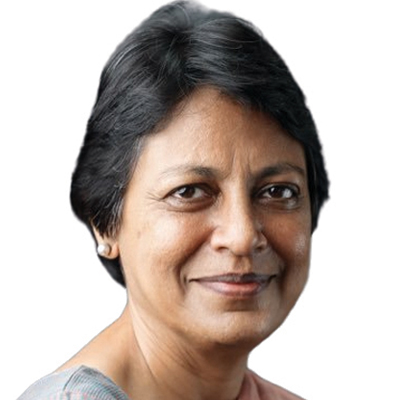
Vini Mahajan
Secretary
Department of Drinking Water and Sanitation
Ministry of Jal Shakti
Government of India
Ms Vini Mahajan, IAS (Punjab: 1987) assumed the charge as Secretary in the Ministry of Jal Shakti, Department of Drinking Water and Sanitation, here today. Ms. Mahajan is an MBA from Indian Institute of Management (IIM) Calcutta, where she was placed on the Roll of Honour. She did B.A. (Honours) Economics from Lady Shri Ram College (LSR), Delhi University.
Prior to this, she was serving as Punjab Chief Secretary from 26th June 2020. Earlier she served as Additional Chief Secretary of the Departments of Housing & Urban Development, Government of Punjab and Industries & Commerce, IT and Investment Promotion. She was ACS/ Principal Secretary of the Department of Health and Family Welfare since April 2012 for 5 years. She also served as Principal Secretary Department of Medical Education and Research, and Principal Secretary Finance, Punjab.
Ms Mahajan served as Joint Secretary to the Prime Minister of India from 2007-2012, and earlier in 2004-05 as Director in the Department of Economic Affairs, Ministry of Finance.
She has served in various capacities in the State of Punjab, as M.D. of the Punjab Infrastructure Development Board, as the first Director Disinvestment in the State, as Secretary, Power and as Special Secretary, Expenditure. She has over 8 years' experience in cutting edge positions at the field level, including as Deputy Commissioner (the first woman to be posted as such in Punjab in 25 years).
Ms Mahajan received numerous academic awards, including the National Talent Search Scholarship. She was a Hubert Humphrey fellow based at American University in Washington DC in 2000 –2001.
Sudhanshu Pandey
Secretary (Food & Public Distribution)
Ministry of Consumer Affairs
Government of India
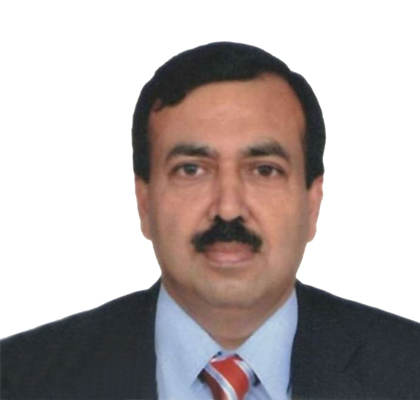
Sudhanshu Pandey
Secretary (Food & Public Distribution)
Ministry of Consumer Affairs
Government of India
Mr. Sudhanshu Pandey joined Indian Administrative Service of Government of India in the year 1987. Has experience of over 33 years in different senior policy positions in State Government, Government of India and in Indian Embassy Germany.
Currently serving as Secretary, Department of Food & Public Distribution since April 2020.
As Additional Secretary in the Department of Commerce, he was responsible for India’s trade policy, India’s negotiations in WTO, G-20, BRICS, UNCTAD and SCO. In WTO, he was responsible for GATT, GATS, SPS, TBT, TRIPS, ASCM and other multilateral agreements.
He spearheaded India’s national agenda on standards and technical regulations and contributed to shaping of a robust quality eco-system. He was also responsible for framing policies and programmes to promote India’s export of services.
As Chief Negotiator for India, he was responsible for various multilateral, unilateral and bilateral trade negotiations at the highest level globally. He led various high level delegations and represented India at multilateral and bilateral fora in all continents of the world.
In earlier assignments in the State Government, he served as Principal Secretary Finance, Principal Secretary Energy and Secretary, Industry & Commerce/Managing Director, SIDCO.
In his present capacity, he deals with matters relating to foodgrain management in the country for the central pool stocks including procurement, storage and movement of wheat, rice & coarse grain for its further distribution through network of Public Distribution System Outlets. He also deals with policy intervention for the sugar and edible oil industry in the country. Administration of National Food Security Act, 2013 is one of the major responsibilities.
He has been recipient of Governor’s Medal, Chief Minister’s Gold Medal, National Award by Akhil Bhartiya Vidvat Parishad, Varanasi & Government of India Commendation Certificates for his services in the Central and Provincial Government.
Arvind Singh
Secretary
Ministry of Tourism
Government of India

Arvind Singh
Secretary
Ministry of Tourism
Government of India
Tanmoy Chakrabarty
Vice President, PAFI and
Group Government Affairs Officer
Tata Sons Pvt Limited

Tanmoy Chakrabarty
Vice President, PAFI and
Group Government Affairs Officer
Tata Sons Pvt Limited
Tanmoy started this assignment on April 01,2018. Here his role is to synergize the Tata Group Company initiatives to Central, State and Local Governments and to develop a “One Tata” approach to the Government Sector.
Earlier for 14 years Tanmoy was the Vice President & Global Head - Government Industry Solutions Unit (ISU) at Tata Consultancy Services Limited (TCS) and was based in New Delhi, India. He built the Government Business for TCS worldwide from 10th January 2004 until 31st March 2018.
He has over 39 years of experience related with Business Development, Sales and Delivery of Integrated IT Solutions and Services to the Government sector and has led many enterprises wide, mission mode and holistic transformational projects in the area of e- Governance in India and other parts of the World. Tanmoy managed more than 305 active clients in the Government Sector for TCS globally and has a team of over 12500 Associates in TCS across 7 Countries.
Prior to TCS, Tanmoy was Head - India Sales and Operations at EDS: Electronic Data Systems, India where he served between 1999 and 2004.
Tanmoy joined Siemens Nixdorf, India in 1996 - 1999 as Vice President - Sales & Marketing at New Delhi and was responsible for All India Sales & Marketing of the various Information Technology Products and Solution and Services.
He has served earlier as a member of the IT Sub-Committee at Assocham, CII, FICCI and PHDCCI. He is on the Defence IT Sub Committee for FICCI. Additionally, he is a Member of the IT Task Force of the Chief of Air Staff, Indian Air Force and a Member of the IT Think Tank for the Chief of Army Staff, Indian Army
He currently is the Chairman of the Infrastructure Sub Committee at FICCI and is the Treasurer and Management Committee Member at Public Affairs Forum of India (PAFI ).
He did his schooling from La Mariniere for Boys, Calcutta and holds a bachelor’s degree in Commerce from St. Xavier's College, Calcutta and is an MBA from IMM, Calcutta. He has completed an Executive Development Program from The Babson College, Boston, Massachusetts, USA.
He resides in Noida, Uttar Pradesh, India with his wife Priti and their two children – Tanushree and Pranoy.
Session 12
Plenary
Digital India – Foundation for Future
Friday, September 23, 2021 (1140 – 1220 Hrs)
Digital India, flagship programme of the government, is not an end by itself. Rather, it is a means of ensuring and achieving equity, inclusion, and sustainability for everyone in every aspect of life, society, and economy. Government has also embarked on a massive manufacturing drive. As digitalization continues apace, new challenges of cybersecurity, data privacy and e-waste have also emerged.
What type of policies are being developed to achieve these objectives? What is being done to ensure growth of startup ecosystem without over-burdening them with onerous regulations while ensuring security of critical infrastructure and individual privacy?
Harish Krishnan
Past President & Co-Founder, PAFI and
Managing Director & Chief Policy Officer
Cisco Systems (India) Private Limited

Harish Krishnan
Past President & Co-Founder, PAFI and
Managing Director & Chief Policy Officer
Cisco Systems (India) Private Limited
As Managing Director & Chief Policy Officer of India & SAARC, Harish leads Cisco’s strategic engagement with National and State Governments of India on wide range of policy issues that concern Cisco in India - as an investor, globalization hub, seller and as a corporate citizen.
Harish actively participates in public policy forums in India and is the Vice President of MAIT, a member of the Confederation of Information Technology, Chairman, American Chamber of Commerce in India National committee on CSR) and FICCI’s National Committee on Telecom.
With over 25 years of experience in Public Affairs, Harish worked in IBM & Confederation of Indian Industry before joining Cisco in 2007.
Chetan Krishnaswamy
Managing Committee Member, PAFI and
Vice President, India Public Policy
Amazon India
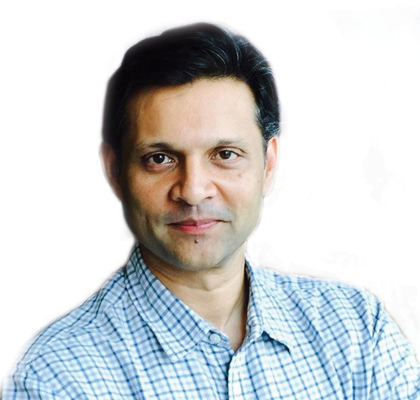
Chetan Krishnaswamy
Managing Committee Member, PAFI and
Vice President, India Public Policy
Amazon India
Chetan joined Amazon after an almost 7 year stint at Google. He comes with a wealth of public policy and business experience, working in some of the most demanding and challenging Indian corporate policy environments. During his time at Google, he built an exceptionally strong team, initiated many proactive partnerships with Central and State governments, and strategically re-positioned the company and its reputation in India across a diverse set of political and policy stakeholders, including at the very highest levels.
Prior to joining Google, Chetan was Director, Corporate affairs at Dell India for five years, and previously led Public Policy at Intel, including serving as the TA to the President of Intel. At Intel he won the Intel Achievement Award (IAA) – the company’s highest award.
Less than 1% Intel employees win the coveted award. Chetan began his career as a journalist and has worked for some of India’s most renowned publications, including the Times of India, where he headed the newspaper’s technology bureau.
Chetan lives with his wife in Gurgaon, and has a son who is doing his undergrad at UC Berkeley. In his free time, Chetan likes to read (non-fiction), listen to Indian classical music, and, if the weather permits, “run a few miles”.
Rajeev Chandrasekhar
Minister of State in the Ministry of Skill Development &
Entrepreneurship; and Electronics & Technology
Government of India
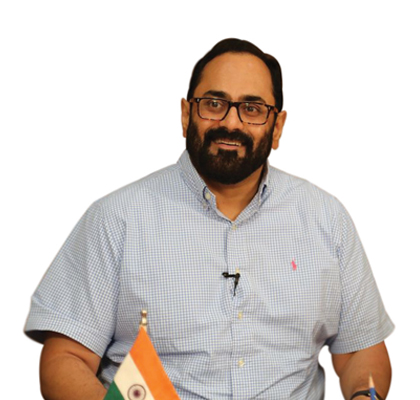
Rajeev Chandrasekhar
Minister of State in the Ministry of Skill Development &
Entrepreneurship; and Electronics & Technology
Government of India
Rajeev Chandrasekhar (born 31 May 1964) is Minister of State for Skill Development and Entrepreneurship and Minister of State for Electronics and Information Technology. He is an Indian politician and entrepreneur, technocrat and a Member of Parliament in the upper house (Rajya Sabha) from Bharatiya Janata Party (BJP) representing Karnataka. Born in Ahmedabad, Gujarat to Air Commodore M. K. Chandrasekhar and Mrs. Valli Chandrasekhar, Rajeev studied in various schools across India, and studied electrical engineering at Manipal Institute of Technology. He completed Masters in Computer Science in 1988 from Illinois Institute of Technology, Chicago. He was handpicked by Vinod Dham to Intel and he worked there from 1988 to 1991. At Intel, he was part of architectural team that designed I486 processor. He also completed an advance management program from Harvard University.
In 1991 after returning to India, he became part of BPL Group. In 1994, Chandrasekhar founded BPL Mobile, one of the major telecom companies in India then with license over places such as Mumbai. In July 2005, he sold his 64 percent stake in BPL Communications to Essar Group for US$1.1 billion. Rajeev founded Jupiter Capital in 2005, with an initial investment of US$100 million, and currently has investments and managed assets of over US$800 million in technology, media, hospitality, and entertainment.
In April 2013, Chandrasekhar was awarded an honorary doctorate by Visvesvaraya Technological University, Belgaum, for his work as an entrepreneur.
Educational Qualifications:
- B.E. (Electrical Engineering)- MIT, Manipal
- Distinguished Alumni Award, 2013
- M.S. (Computer Science)- Illinois Institute of Technology, Chicago
- Recipient of IIT Global Alumni Award, 2007
- Short Management Programmes- Harvard University, Boston, USA
- Various other Technology programmes - Stanford University, Intel University
- Doctor of Science- Visvesvaraya Technological University
Rajeev was an Independent member of Rajya Sabha representing Karnataka from April 2006 to April 2018. In April 2018, he was re-elected to the Rajya Sabha from Karnataka for a third six-year term as a BJP member. He has advocated for governance reforms, institution building, Internet freedom, national security, welfare of the Armed Forces Personnel and sustainable development of Bangalore and Karnataka.
In Parliament, Rajeev is a vocal advocate of Governance, Technology and Economics. As a first-term MP, he was the first one to raise corruption like 2G Scam in parliament and is outspoken on issues that concern Governance. Rajeev focuses on Reforms in Economy and Governance, Technology, and Internet, Issues related to youth, and issues concerning national security and sustainable city governance of Bengaluru.
Rajeev's political work focuses on protecting Bengaluru and Bengalureans' interests with Urban Governance issues, Transforming India through Governance and Economic reforms, Veteran and Armed Forces issues, Protecting our Children etc. For causes he believes in and supports, he has - apart from raising these in Parliament, actively approached the courts to intervene on behalf of citizens as in the case of Sec 66A, Aadhaar privacy issues and voting rights for Armed Forces. He is an active MP and his work and its effects are available through periodic report cards. He is widely recognized as the most Informed and active MP on Digital India, Internet and Technology issues, Spectrum Allocation, Net Neutrality, Consumer rights in cyber space policies and regulatory matters and is unafraid to dive into issues that need support after informing himself well on these.
Additionally, he has focused on and taken up a wide array of macro-economic and micro-economic issues that include restructuring of Public Sector Banks, creating Transparency in the management of Public Assets and repairing key sectors in the economy to revive growth amongst others.
It was his relentless campaign and later a petition in the Supreme Court that led to Armed Forces personnel getting the right to vote in their place of posting in the 2014 General Elections and further electoral reforms to bring the facility of e-Postal Ballot
to Armed Forces. After the Uri Terror attack in September 2016, he was the first MP in India to have challenged the MFN status granted to Pakistan and submitted a Private Member's Bill in the Rajya Sabha on 18 November 2016 titled: "The Declaration of Countries as Sponsor of Terrorism Bill, 2016". In February 2016, Rajeev was felicitated by the General Officer Commanding-in- Chief, Western Command, Lt Gen KJ Singh, PVSM, AVSM (Bar) with the GOC-in- C Commendation Card at HQ Western Command, Chandigarh for his support and work for the Armed Forces, veterans, and their families.
He was nominated for UK's prestigious Index Freedom of Expression Award for 2013, in the category of Digital Freedom for fighting against internet censorship in India and challenging legislation that will stifle digital freedom.
A brief timeline of Rajeev’s parliamentary journey:
- 2006 - Elected to the Rajya Sabha Representing Urban Bengaluru, Karnataka
- 2008 – 2009 - Served as the youngest president of FICCI-Federation of Indian chambers of Commerce and Industry
- 2012 - Unanimously re-elected for a second term in Rajya Sabha
- Dec 2012 - Flags of Honour Foundation and Dr N K Kalia file petition on Capt Saurabh Kalia UN HRC
- 2013 - Launches ASK - an online campaign to give citizens an avenue to directly get their voice heard in Parliament
- Mar 2014 - Rajeev’s fight for Armed Forces Voting Rights sees victory with the Supreme Court granting Armed Forces the right to vote
- Mar 2015 – Rajeev’s fight for Freedom of Expression and speech on Internet makes the Supreme Court strike down Article 66 A of the Information & Technology Act
- July 2015 – Rajeev’s intervention sees actions against outlets serving liquor to under aged patrons
- Sep 2015 - One Rank One Pension - an issue Rajeev fought for persistently since 2006 is formally announced by the Defence Minister
- Nov / Dec 2015 - Rajeev calls for a Roadmap to end Child Sexual Abuse and forms the National Coalition to Protect Our Children (NCPOC)
- 2018 - Elected as BJP Rajya Sabha MP representing Karnataka
- September 2020 - Appointed as BJP National Spokesperson
- February 2021 - Appointed as Puducherry election co-incharge
- July 2021 - Minister of State for Skill Development and Entrepreneurship and Minister of State for Electronics and Information Technology
Himar Arjun Singh
Chief of Public Policy
Bharti Enterprises

Himar Arjun Singh
Chief of Public Policy
Bharti Enterprises
Himar Arjun Singh is a seasoned policy professional with 20+ years of experience in areas encompassing advocacy, corporate affairs and communications. He has worked in various capacities in his career: as a journalist, an economist, with industry bodies, government ministries & agencies and the Indian corporate sector.
Himar has worked across geographies - India, South Asia, Europe and Africa in sectors such as digital economy & infrastructure, retail & e-commerce and macroeconomics. Currently he is Chief of Public Policy and Head, Corporate Communications at Bharti Enterprises.
His responsibilities include working extensively on multilateral engagements with the WTO, World Economic Forum, Broadband Commission, Carnegie Endowment for International Peace and the Council on Foreign Relations, among others.
Himar has also served as the B-20 Sherpa at G-20 China in 2016; G-20 Germany in 2017 and G-20 Argentina in 2018. He is an alumnus of Bishop Cotton School, Shimla; Himachal Pradesh University and Fudan University Shanghai.



